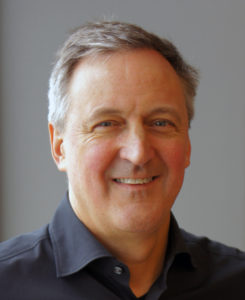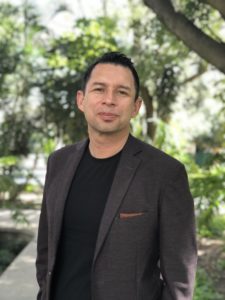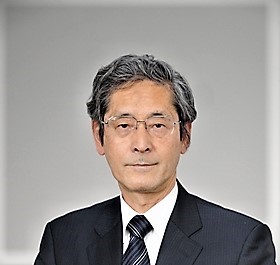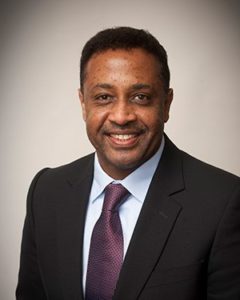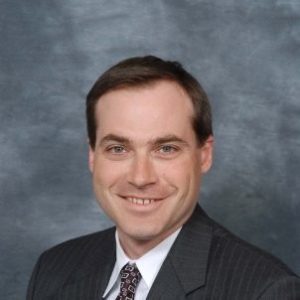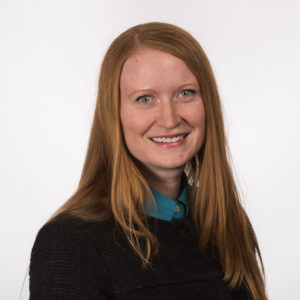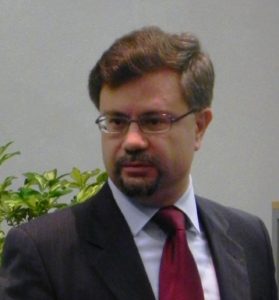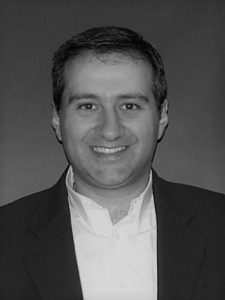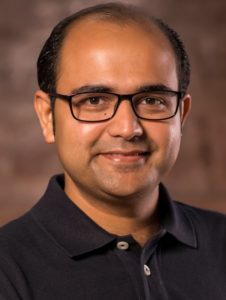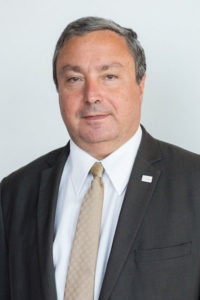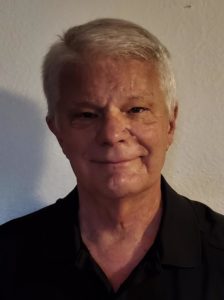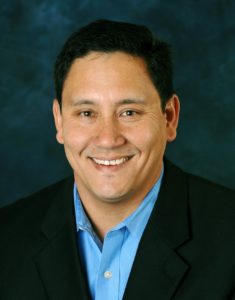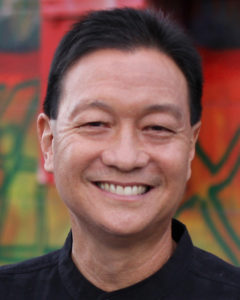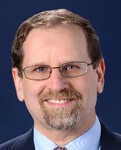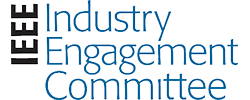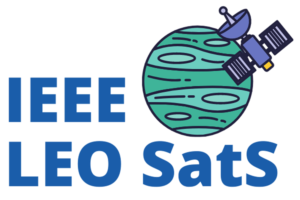Featured Speakers
Larissa Paredes Muse, Smart Street Lighting consultant, Quanta Technology
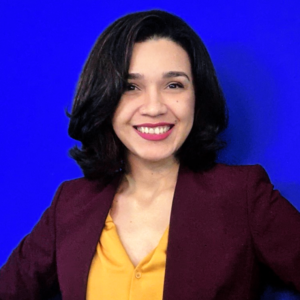 Biography: Larissa is a consultant at Quanta Technology, involved in Smart Street Lighting and Climate & Resilience projects for the power sector. She is an architect and urban planner specialized in city digitalization and smart street lighting. Her professional and academic background includes multiple experiences related to energy efficiency and environmental performance, city planning & policy design for sustainable urban development, street lighting modernization, and smart cities. With a master’s degree in Urban Engineering, her research addressed the transformation of the street lighting sector in the context of Smart Cities. In Brazil, she collaborated in an inter-ministerial cooperative initiative with over 200 smart cities experts, which elaborated the Brazilian Directive for Smart Cities, published last year. As a member of IEEE, she is involved in various activities, including conference organization and standard development projects. She is the Marketing Committee Chair of the IEEE Smart Cities Community and the Chair of the IEEE P2784 (Smart City Planning and Technology Guide) Standard project. In the last year, Larissa spoke in over 30 events worldwide, sharing her knowledge with thousands of attendees in three different languages.
Biography: Larissa is a consultant at Quanta Technology, involved in Smart Street Lighting and Climate & Resilience projects for the power sector. She is an architect and urban planner specialized in city digitalization and smart street lighting. Her professional and academic background includes multiple experiences related to energy efficiency and environmental performance, city planning & policy design for sustainable urban development, street lighting modernization, and smart cities. With a master’s degree in Urban Engineering, her research addressed the transformation of the street lighting sector in the context of Smart Cities. In Brazil, she collaborated in an inter-ministerial cooperative initiative with over 200 smart cities experts, which elaborated the Brazilian Directive for Smart Cities, published last year. As a member of IEEE, she is involved in various activities, including conference organization and standard development projects. She is the Marketing Committee Chair of the IEEE Smart Cities Community and the Chair of the IEEE P2784 (Smart City Planning and Technology Guide) Standard project. In the last year, Larissa spoke in over 30 events worldwide, sharing her knowledge with thousands of attendees in three different languages.
Henning Schulzrinne, Professor, Department of Computer Science and Department of Electrical Engineering, Columbia University
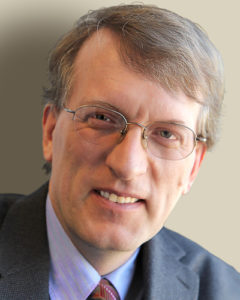 Biography: Prof. Henning Schulzrinne, Levi Professor of Computer Science at Columbia University, received his Ph.D. from the University of Massachusetts in Amherst, Massachusetts. He was an MTS at AT&T Bell Laboratories and an associate department head at GMD-Fokus (Berlin), before joining the Computer Science and Electrical Engineering departments at Columbia University. He served as chair of the Department of Computer Science from 2004 to 2009, as Engineering Fellow, Technology Advisor and Chief Technology Officer at the US Federal Communications Commission (FCC) from 2010 to 2017. In 2019-2020, he worked as a Technology Fellow in the US Senate.
Biography: Prof. Henning Schulzrinne, Levi Professor of Computer Science at Columbia University, received his Ph.D. from the University of Massachusetts in Amherst, Massachusetts. He was an MTS at AT&T Bell Laboratories and an associate department head at GMD-Fokus (Berlin), before joining the Computer Science and Electrical Engineering departments at Columbia University. He served as chair of the Department of Computer Science from 2004 to 2009, as Engineering Fellow, Technology Advisor and Chief Technology Officer at the US Federal Communications Commission (FCC) from 2010 to 2017. In 2019-2020, he worked as a Technology Fellow in the US Senate.
He has published more than 250 journal and conference papers, and more than 70 Internet RFCs. Protocols co-developed by him, such as RTP, RTSP and SIP, are used by almost all Internet telephony and multimedia applications.
He is a Fellow of the ACM and IEEE, has received the New York City Mayor’s Award for Excellence in Science and Technology, the VON Pioneer Award, TCCC service award, IEEE Internet Award, IEEE Region 1 William Terry Award for Lifetime Distinguished Service to IEEE, the UMass Computer Science Outstanding Alumni recognition, and is a member of the Internet Hall of Fame.
Charles Despins, Professor, École de Technologie Supérieure
Biography: Charles Despins’ career has spanned, over more than 35 years, both the academic and industrial segments of the information technology and communications sector. In addition to having been a faculty member of INRS-Telecommunications (Université du Québec) in Montreal, he later held senior management positions in the private sector including senior director of technology development at Microcell Telecommunications as well as vice-president and chief technology officer of Bell Nordiq Group. He also worked as a consultant for wireless network deployments in India and China. After leaving his full-time academic position in 1996, he remained active in research as an adjunct professor at INRS. From 2003 to 2016, he was also founding President & CEO of Prompt, a university-industry research consortium which he grew into a highly recognized collaborative research actor in Québec. He rejoined academia in 2016 and is currently professor of electrical engineering after serving as vice-president – research & partnerships at École de Technologie Supérieure (ÉTS), Université du Québec. He holds a bachelor’s degree in electrical engineering from McGill University in Montreal, as well as M.Sc. and Ph.D. degrees, also in electrical engineering, from Carleton University in Ottawa. He was the recipient of the (1993) Best Paper of the Year award in IEEE Transactions on Vehicular Technology. He was named in 2005 a Fellow of the Engineering Institute of
Canada and was the recipient in 2006 of the Outstanding Engineer Award from IEEE Canada for (citation) “excellence in the electrical engineering profession in both academia and industry”.
Victor Larios, Director, Smart Cities Innovation Center, University of Guadalajara
Biography: Victor M. Larios followed higher education degree programs a the ITESO University in Mexico (BSc in Electronics Engineering) and graduated in 1996. In 1997 got the M.Sc. at the Université de Technologie de Compiègne in France and its Ph.D. in Informatics Engineering in 2001. Since 2004 got the position as a Full Professor at the Information Systems Department at the University of Guadalajara (UDG). Since April 2014, Dr. Victor M. Larios has been the funder and director of the Smart Cities Innovation Center (SCIC) at UDG. He led a group of researchers in Smart Cities and Information Technologies. The SCIC is a think-thank to help the government, industry, and other academic partners join efforts to improve life quality by using IT as the main transformation vehicle. His primary research interests are Smart Cities, IoT Distributed Systems, Networking, Multiagent Systems, and Data Visualization using Virtual Reality. Dr. Larios published more than 70 papers in international refereed journals and conferences and published a Serious Games book. As a continuous activity, Dr. Larios collaborates in projects with the High Technology industry and government using design thinking and agile methodologies to accelerate technology transfer in living labs. He is the founder and CEO of IDI Smart Cities, collaborating with Advion Solutions LTD from Finland. The main activities are market research and international projects supporting Latin American Countries and the European Union. More specifically, efforts are to introduce the Circular Economic Model as a sustainability component for the Mega-Cities and support scholarships to develop local talent. As a volunteer, Dr. Larios also is a technical advisor for the Guadalajara Smart City project for the government and international ONGs as IEEE. Victor M. Larios is a Senior Member at IEEE with 29 years of membership and the local leader of Guadalajara Core City at the IEEE Smart Cities Initiative since 2013. In 2019 he started to support the Internet of People (IoP) projects with Joel Myers, director of the IEEE IoT Smart Cities Vertical.
John Prousalidis, Associate Professor, Department of Naval Architecture and Marine Engineering, National Technical University of Athens
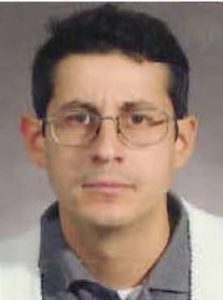 Biography: John Prousalidis was born in Athens (Greece) in 1968. He received his MSc (1991) and PhD (1997) degrees from the School of Electrical and Computer Engineering of the National Technical University of Athens (NTUA). In 2001 he joined the Academic Staff of the School of Naval Architecture and Marine Engineering of NTUA in the scientific field of “Marine Electrical and Electronic Engineering”, (currently Full Professor). He is the author/co-author of 4 books, about 100 papers, reviewer in IEEE, IET, Elsevier and IMarEST journals. He is a member of the Technical Chamber of Greece, IEEE, IMarEST, member of the board of the Hellenic Joint Branch of RINA/IMarEST,member of the Publication Supervisory Board of IMarEST Publications. Since April 2020 he is the vice-chairman of the IEEE Marine Power Systems Coordinating Committee (IEEE-MSCC), while since March 2021 he is member of the IEEE/EPPC Working Group on Energy and member of the IEC/ISO/IEEE JWG28 dealing with 80005 series of standards on ship-to-shore interconnections. His scientific interests include ship electric propulsion, All Electric Ship, green ships, alternative fuels, cold ironing, smart ports, HVDC/HVAC submersible interconnections.
Biography: John Prousalidis was born in Athens (Greece) in 1968. He received his MSc (1991) and PhD (1997) degrees from the School of Electrical and Computer Engineering of the National Technical University of Athens (NTUA). In 2001 he joined the Academic Staff of the School of Naval Architecture and Marine Engineering of NTUA in the scientific field of “Marine Electrical and Electronic Engineering”, (currently Full Professor). He is the author/co-author of 4 books, about 100 papers, reviewer in IEEE, IET, Elsevier and IMarEST journals. He is a member of the Technical Chamber of Greece, IEEE, IMarEST, member of the board of the Hellenic Joint Branch of RINA/IMarEST,member of the Publication Supervisory Board of IMarEST Publications. Since April 2020 he is the vice-chairman of the IEEE Marine Power Systems Coordinating Committee (IEEE-MSCC), while since March 2021 he is member of the IEEE/EPPC Working Group on Energy and member of the IEC/ISO/IEEE JWG28 dealing with 80005 series of standards on ship-to-shore interconnections. His scientific interests include ship electric propulsion, All Electric Ship, green ships, alternative fuels, cold ironing, smart ports, HVDC/HVAC submersible interconnections.
Najat Zarrat, Director, African Local Government Academy, UCLG Africa
 Biography: Dr. Najat Zarrouk is the Director of Development Branch, and of the African Local Government Academy of the United Cities and Local Government of Africa (UCLG-Africa) based in Rabat, where she has been working since 2016.
Biography: Dr. Najat Zarrouk is the Director of Development Branch, and of the African Local Government Academy of the United Cities and Local Government of Africa (UCLG-Africa) based in Rabat, where she has been working since 2016.
She has 39 years of experience in the Public Service at national, continental and global levels, in particular as a former Civil servant in the Ministry of the Interior of Morocco where she served from 1983 to 2014, including as Governor, Director of Training.
Ramesh Ramadoss, Director, CaritaTech Inc. and Expert Panel Member, EU Blockchain Observatory and Forum
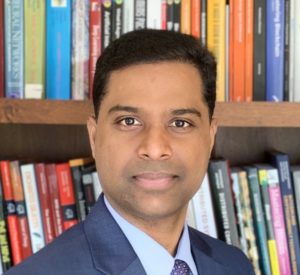 Biography: Ramesh Ramadoss is an entrepreneur, investor, author, and international speaker. He is a co-chair of the IEEE Blockchain Initiative. He also serves on the Expert Panel of the European Union Blockchain Observatory and Forum (EUBOF). He received his Doctor of Philosophy (PhD) degree in Electrical Engineering from the University of Colorado at Boulder, USA. He has conducted projects for DARPA, NASA, US Army, US Air Force, Sandia National Labs, and Motorola Labs. He is the author or co-author of 1 book, 3 book chapters and 55 research papers. Since 2018, he has been actively involved in the blockchain field and has delivered talks at over 95 international conferences in 40 countries. He has been a member of IEEE since 1999. He was elevated to the grade of IEEE Senior Member in 2013.
Biography: Ramesh Ramadoss is an entrepreneur, investor, author, and international speaker. He is a co-chair of the IEEE Blockchain Initiative. He also serves on the Expert Panel of the European Union Blockchain Observatory and Forum (EUBOF). He received his Doctor of Philosophy (PhD) degree in Electrical Engineering from the University of Colorado at Boulder, USA. He has conducted projects for DARPA, NASA, US Army, US Air Force, Sandia National Labs, and Motorola Labs. He is the author or co-author of 1 book, 3 book chapters and 55 research papers. Since 2018, he has been actively involved in the blockchain field and has delivered talks at over 95 international conferences in 40 countries. He has been a member of IEEE since 1999. He was elevated to the grade of IEEE Senior Member in 2013.
Dr. Xudong Wang, John Wu and Jane Sun Chair Professor, UM-SJTU Joint Institute, Shanghai Jiao Tong University
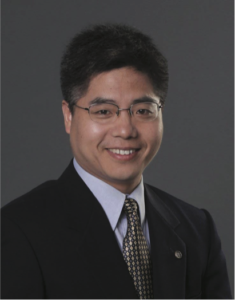 Biography: Dr. Xudong Wang received the Ph.D. degree in Electrical and Computer Engineering from Georgia Institute of Technology in 2003. He is the John Wu and Jane Sun Professor of Engineering at the UM-SJTU Joint Institute, Shanghai Jiao Tong University. He is also an affiliate professor with the Department of Electrical and Computer Engineering at the University of Washington. He was a senior research engineer, senior network architect, and R&D manager with several companies. Dr. Wang was an editor for IEEE Transactions on Mobile Computing, IEEE Transactions on Vehicular Technology, Elsevier Ad Hoc Networks, and China Communications. He was also a guest editor for several international journals. He was a general chair of 2017 IEEE 5G Summit in Shanghai and a TPC Co-Chair of the 32nd International Conference on Information Networking. He was the demo co-chair of the ACM International Symposium on Mobile Ad Hoc Networking and Computing (ACM MOBIHOC 2006), a technical program co-chair of Wireless Internet Conference (WICON) 2007, and a general co-chair of WICON 2008. Dr. Wang is an IEEE Fellow and was a voting member of IEEE 802.11 and 802.15 Standard Committees. His research interests include wireless communication networks, edge computing, joint communications and sensing.
Biography: Dr. Xudong Wang received the Ph.D. degree in Electrical and Computer Engineering from Georgia Institute of Technology in 2003. He is the John Wu and Jane Sun Professor of Engineering at the UM-SJTU Joint Institute, Shanghai Jiao Tong University. He is also an affiliate professor with the Department of Electrical and Computer Engineering at the University of Washington. He was a senior research engineer, senior network architect, and R&D manager with several companies. Dr. Wang was an editor for IEEE Transactions on Mobile Computing, IEEE Transactions on Vehicular Technology, Elsevier Ad Hoc Networks, and China Communications. He was also a guest editor for several international journals. He was a general chair of 2017 IEEE 5G Summit in Shanghai and a TPC Co-Chair of the 32nd International Conference on Information Networking. He was the demo co-chair of the ACM International Symposium on Mobile Ad Hoc Networking and Computing (ACM MOBIHOC 2006), a technical program co-chair of Wireless Internet Conference (WICON) 2007, and a general co-chair of WICON 2008. Dr. Wang is an IEEE Fellow and was a voting member of IEEE 802.11 and 802.15 Standard Committees. His research interests include wireless communication networks, edge computing, joint communications and sensing.
Abhay Karandikar, Director, Indian Institute of Technology (IIT) Kanpur
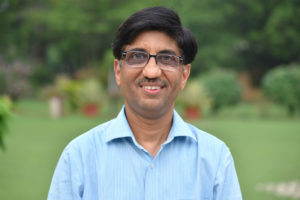 Biography: Prof Abhay Karandikar is currently the Director, Indian Institute of Technology (IIT) Kanpur, one of the premier technical institutes of India. Before joining IIT Kanpur as the Director in April 2018, he served as Institute Chair Professor in the Department of Electrical Engineering at Indian Institute of Technology (IIT) Bombay. He also served as Dean (Faculty Affairs) and Head of the Electrical Engineering Department at IIT Bombay. He spearheaded a national effort in setting up Telecom Standards Development Society of India (TSDSI), India’s standards body for telecom with participation of all stakeholders. Prof Karandikar was the founding member and former Chairman of TSDSI. He was also Member (Part-Time) of Telecom Regulatory Authority of India (TRAI) from January 2017- January 2020. He serves on the board of several companies and has founded and mentored start-ups in telecom and networking. He was member of High Level Forum on 5G setup by the Government of India and Chaired the 5G Spectrum Policy Task Force. Prof Karandikar has several patents issued and pending, contributions to IEEE, 3GPP standards, contributed chapters in books and large number of papers in international journals and conferences to his credit.
Biography: Prof Abhay Karandikar is currently the Director, Indian Institute of Technology (IIT) Kanpur, one of the premier technical institutes of India. Before joining IIT Kanpur as the Director in April 2018, he served as Institute Chair Professor in the Department of Electrical Engineering at Indian Institute of Technology (IIT) Bombay. He also served as Dean (Faculty Affairs) and Head of the Electrical Engineering Department at IIT Bombay. He spearheaded a national effort in setting up Telecom Standards Development Society of India (TSDSI), India’s standards body for telecom with participation of all stakeholders. Prof Karandikar was the founding member and former Chairman of TSDSI. He was also Member (Part-Time) of Telecom Regulatory Authority of India (TRAI) from January 2017- January 2020. He serves on the board of several companies and has founded and mentored start-ups in telecom and networking. He was member of High Level Forum on 5G setup by the Government of India and Chaired the 5G Spectrum Policy Task Force. Prof Karandikar has several patents issued and pending, contributions to IEEE, 3GPP standards, contributed chapters in books and large number of papers in international journals and conferences to his credit.
Shige Minami, Director of Technology and Infrastructure, Punahou School, Honolulu
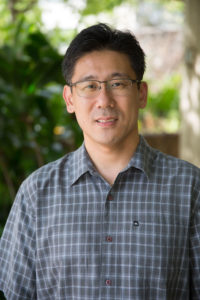 Biography: Shige has over 20 years of experience working in information technology and telecommunications. He currently serves as Punahou School’s Director of Infrastructure and Technology where he oversees the team that manages cybersecurity, data center, cloud, collaboration, and network infrastructure.
Biography: Shige has over 20 years of experience working in information technology and telecommunications. He currently serves as Punahou School’s Director of Infrastructure and Technology where he oversees the team that manages cybersecurity, data center, cloud, collaboration, and network infrastructure.
Previously, Shige managed the Asia Pacific Engineering team at World Wide Technology (WWT), responsible for designing, deploying, and maintaining the Hawai’i State Department of Education (DOE) network and data centers. As a byproduct of the DOE-WWT partnership, in just five years, the DOE realized a 25x increase in network speeds and was recognized as the number one K-12, network deployment in the nation based on speed, accessibility, and affordability. Prior to WWT, Shige served as Senior Manager, Office of Innovation and Technology at Hawaiian Telcom, where his team was responsible for deploying large-scale systems and next-generation networks, including the engineering and deployment of IPTV, carrier VOIP, and MPLS based technologies.
Shige is a graduate of the University of Hawai’i at Mānoa and holds a Bachelor of Science Degree in Electrical Engineering.
Bo Ai, Professor and Ph.D. Supervisor, Beijing Jiaotong University
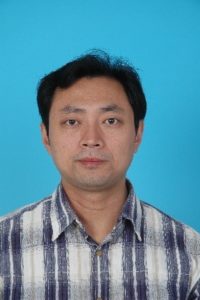 Biography: Prof. Bo Ai is now working as a full Professor and Ph.D. supervisor at Beijing Jiaotong University, where he is a deputy director of State Key Lab. of Rail Traffic Control and Safety, and a deputy director of Research Institute of Modern Telecommunications. He is one of the main responsible people for Beijing “Urban rail operation control system” International Science and Technology Cooperation Base, and the backbone member of the Innovative Engineering Based jointly granted by Chinese Ministry of Education and the State Administration of Foreign Experts Affairs. He was a visiting professor at EE department, Standard University during March and September, 2015. During his visiting period, he has been invited by Stanford International Developing Center, UC Berkeley, University of South California, Harvard, University of Maryland, Georgia Tech. for academic presentations. He has authored 6 books and published over 300 scientific research papers in his research area. He has hold 26 invention patents. He is serving as an associate editor for IEEE transactions on Consumer Electronics and an editorial member of Wireless Personal Communications. He has been notified by Council of Canadian Academies (CCA) that, based on Scopus database, Prof. Ai Bo has been listed as one of the Top 1% authors in his field all over the world. Prof. Ai Bo has also been Feature Interviewed by IET electronics Letters. Recently, he has coauthored a book with European Union and North American scholars invited by Wiley John & Sons for a 5G book: Fundamentals for 5G Mobile Networks. Prof. Bo Ai was elected as IEEE fellow for contributions to channel modeling and wireless communications in high-speed railways.
Biography: Prof. Bo Ai is now working as a full Professor and Ph.D. supervisor at Beijing Jiaotong University, where he is a deputy director of State Key Lab. of Rail Traffic Control and Safety, and a deputy director of Research Institute of Modern Telecommunications. He is one of the main responsible people for Beijing “Urban rail operation control system” International Science and Technology Cooperation Base, and the backbone member of the Innovative Engineering Based jointly granted by Chinese Ministry of Education and the State Administration of Foreign Experts Affairs. He was a visiting professor at EE department, Standard University during March and September, 2015. During his visiting period, he has been invited by Stanford International Developing Center, UC Berkeley, University of South California, Harvard, University of Maryland, Georgia Tech. for academic presentations. He has authored 6 books and published over 300 scientific research papers in his research area. He has hold 26 invention patents. He is serving as an associate editor for IEEE transactions on Consumer Electronics and an editorial member of Wireless Personal Communications. He has been notified by Council of Canadian Academies (CCA) that, based on Scopus database, Prof. Ai Bo has been listed as one of the Top 1% authors in his field all over the world. Prof. Ai Bo has also been Feature Interviewed by IET electronics Letters. Recently, he has coauthored a book with European Union and North American scholars invited by Wiley John & Sons for a 5G book: Fundamentals for 5G Mobile Networks. Prof. Bo Ai was elected as IEEE fellow for contributions to channel modeling and wireless communications in high-speed railways.
Stephen B. Weinstein, Independent Consultant
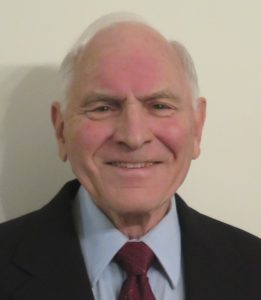 Biography: Stephen B. Weinstein, who lives in New York City, received his SB, MSc, and PhD degrees in Electrical Engineering from MIT, the University of Michigan, and the University of California at Berkeley respectively.
Biography: Stephen B. Weinstein, who lives in New York City, received his SB, MSc, and PhD degrees in Electrical Engineering from MIT, the University of Michigan, and the University of California at Berkeley respectively.
Dr. Weinstein conducted early research and development of data-driven echo cancellation, software generation of OFDM signals, and multimedia communications, and was active in the 1990s IEEE P1520 standards initiative on open network control interfaces. He received the 2006 Eduard Rhein Foundation (Germany) basic research prize for his foundational work on OFDM and IEEE’s 2016 Emberson Award for contributions to IEEE publications, awards and globalization. He is the author of Getting the Picture: A Guide to CATV and the New Electronic Media (IEEE Press, 1984), co-author of the textbook Data Communication Principles (Plenum, 1992), the author of The Multimedia Internet (Springer, 2005), and co-author of the ComSoc Guide to Passive Optical Networks (Wiley-IEEE Press, 2012).
Dr. Weinstein is a Life Fellow of the IEEE and a past President (1996-97) of the IEEE Communications Society (ComSoc). He was an early founding Editor in Chief of IEEE Communications Magazine.
Tomonori Aoyama, Emeritus Professor, The University of Tokyo; President, NPO Broadband Association
Biography: Tomonori Aoyama graduated from The University of Tokyo with a Master Degree in 1969, and joined NTT at that time. He engaged in R&D on transmission and network technologies.He stayed in MIT as a visiting scientist in 1973-1974. In 1997 he moved to The University of Tokyo as a professor, and then in 2006, he joined Keio University as a professor until 2017. He is Emeritus Professor of The University of Tokyo. He is IEEE Life Fellow, and IEICE Fellow. He received the IEEE ComSoc/KICS Exemplary Global Service Award in 2009, and the IEEE Masaru Ibuka Consumer Electronics Award in 2019. He also received several awards given by IEICE and the Japanese Government.
Jaafar Elmirghani, Director, Institute of Communication and Power Networks and Professor, Communication Networks and Systems, School of Electronic and Electrical Engineering, University of Leeds, UK
Biography: Prof. Jaafar Elmirghani is Fellow of IEEE, Fellow of IET and Fellow of Institute of Physics and Director of the Institute of Communication and Power Networks, Leeds. He has provided outstanding leadership in a number of large research projects, secured over £30m in grants and was PI of the £6m EPSRC Intelligent Energy Aware Networks (INTERNET) Programme Grant, 2010-2016. He was PI of the CHIST-ERA STAR project with a focus on energy efficiency, 2013-2016. He is Co-Chair of the IEEE Sustainable ICT initiative, a pan IEEE Societies initiative responsible for Green ICT activities across IEEE, 2012-present. He was awarded in international competition the IEEE Comsoc 2005 Hal Sobol award, 3 IEEE Comsoc outstanding technical achievement and service awards (2009, 2015, 2020), the 2015 GreenTouch 1000x award, IET Optoelectronics 2016 Premium Award for work on energy efficiency and shared the 2016 Edison Award in the collective disruption category with a team of 6 from GreenTouch for joint work on the GreenMeter. His work led to 5 IEEE standards with a focus on cloud and fog computing and energy efficiency, where he currently heads the work group responsible for IEEE P1925.1, IEEE P1926.1, IEEE P1927.1, IEEE P1928.1 and IEEE P1929.1 standards; this resulting in significant impact through industrial and academic uptake. He is Area Editor of IEEE JSAC series on Machine Learning for Communications and is PI of the EPSRC £6.6m Terabit Bidirectional Multi-user Optical Wireless System (TOWS) for 6G LiFi, 2019-2024. He has published over 550 technical papers, and has research interests in energy efficiency, optimisation, machine learning, cloud and fog computing.
Ashutosh Dutta, Senior Scientist and 5G Chief Strategist, Johns Hopkins University Physics Laboratory (JHU/APL)
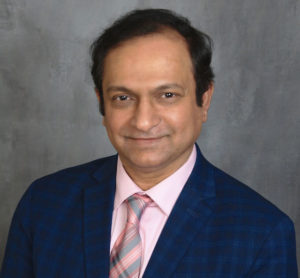 Biography: Ashutosh Dutta is currently senior scientist and 5G Chief Strategist at the Johns Hopkins University Applied Physics Laboratory (JHU/APL). He is also a JHU/APL Sabbatical Fellow and adjunct faculty at The Johns Hopkins University. Ashutosh also serves as the chair for Electrical and Computer Engineering Department of Engineering for Professional Program at Johns Hopkins University. His career, spanning more than 34 years, includes Director of Technology Security and Lead Member of Technical Staff at AT&T, CTO of Wireless for NIKSUN, Inc., Senior Scientist and Project Manager in Telcordia Research, Director of the Central Research Facility at Columbia University, adjunct faculty at NJIT, and Computer Engineer with TATA Motors. He has more than 100 conference, journal publications, and standards specifications, three book chapters, and 31 issued patents. Ashutosh is co-author of the book, titled, “Mobility Protocols and Handover Optimization: Design, Evaluation and Application” published by IEEE and John & Wiley.
Biography: Ashutosh Dutta is currently senior scientist and 5G Chief Strategist at the Johns Hopkins University Applied Physics Laboratory (JHU/APL). He is also a JHU/APL Sabbatical Fellow and adjunct faculty at The Johns Hopkins University. Ashutosh also serves as the chair for Electrical and Computer Engineering Department of Engineering for Professional Program at Johns Hopkins University. His career, spanning more than 34 years, includes Director of Technology Security and Lead Member of Technical Staff at AT&T, CTO of Wireless for NIKSUN, Inc., Senior Scientist and Project Manager in Telcordia Research, Director of the Central Research Facility at Columbia University, adjunct faculty at NJIT, and Computer Engineer with TATA Motors. He has more than 100 conference, journal publications, and standards specifications, three book chapters, and 31 issued patents. Ashutosh is co-author of the book, titled, “Mobility Protocols and Handover Optimization: Design, Evaluation and Application” published by IEEE and John & Wiley.
As a Technical Leader in 5G and security, Ashutosh has been serving as the founding Co-Chair for the IEEE Future Networks Initiative that focuses on 5G standardization, education, publications, testbed, and roadmap activities. Ashutosh serves as IEEE Communications Society’s Distinguished Lecturer for 2017-2020 and as an ACM Distinguished Speaker (2020-2022) Ashutosh has served as the general Co-Chair for the premier IEEE 5G World Forums and has organized 73 5G World Summits around the world. Ashutosh currently serves as the Chair for IEEE Industry Connection’s O-RAN activities.
Ashutosh served as the chair for IEEE Princeton / Central Jersey Section, Industry Relation Chair for Region 1 and MGA, Pre-University Coordinator for IEEE MGA and vice chair of Education Society Chapter of PCJS. He co-founded the IEEE STEM conference (ISEC) and helped to implement EPICS (Engineering Projects in Community Service) projects in several high schools. Ashutosh has served as the general Co-Chair for the IEEE STEM conference for the last 10 years. Ashutosh served as the Director of Industry Outreach for IEEE Communications Society from 2014-2019. He was recipient of the prestigious 2009 IEEE MGA Leadership award and 2010 IEEE-USA professional leadership award. Ashutosh currently serves as Member-At-Large for IEEE Communications Society for 2020-2022.
Ashutosh is a Distinguished Alumnus and obtained BS in Electrical Engineering from NIT Rourkela; MS in Computer Science from NJIT; and Ph.D. in Electrical Engineering from Columbia University, New York under the supervision of Prof. Henning Schulzrinne. Ashutosh is a Fellow of IEEE and Distinguished Member of ACM.
Kevin Smith, Vice President, Technology Development and Planning, Verizon
As vice president – Network Planning, Kevin is responsible for developing core network element, platform technology, and feature roadmaps that best meet Verizon’s long-term transport and IP infrastructure requirements.
Prior to his current role, Kevin was Vice President of Network Transformation. Kevin was responsible for developing and implementing Verizon’s fiber optics deployment strategy across the US. This included all activity tied to migrating legacy copper services to fiber in the ILEC region as well as the Build vs Buy strategy outside the ILEC.
Previous positions included, Executive Director of Network Capital Management, Kevin was responsible for managing the multi-billion dollar Wireline Network capital budget.
Kevin has held many positions in the outside plant space including engineering, construction, and FTTP product development and deployment.
Kevin graduated from Rochester Institute of Technology with a Bachelor’s Degree in Electrical Engineering. He is married with three children and lives in Lopatcong, NJ.
Javan Erfanian, Distinguished Member, Technical Staff, Bell Canada
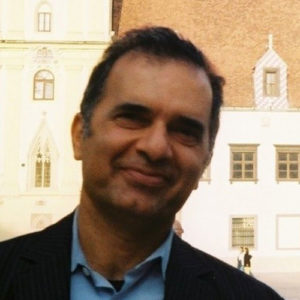 Biography: In his role within Wireless Network at Bell Canada, Javan primes the wireless technology strategic direction, while working with the global industry, various forums, and the research community. In particular, he has been contributing to the work programs at NGMN, including the 5G initiative, for which he was the Co-Lead, and the 5G White Paper Chief Editor (2014/15), and, most recently, the Co-Editor of the NGMN 5G White Paper 2 (2019/20). He also led the initial work on NGMN 5G Verticals requirements, and is currently a member of the NGMN Strategy and Program Committee. Javan has taught many academic programs, particularly at University of Toronto, with research publications and many citations. He has been an IEEE Communications Society Distinguished Speaker for many years, and a recipient of the IEEE Millennium Medal in 2000. Javan is a Steering Board member of the Wireless World Research Forum (WWRF).
Biography: In his role within Wireless Network at Bell Canada, Javan primes the wireless technology strategic direction, while working with the global industry, various forums, and the research community. In particular, he has been contributing to the work programs at NGMN, including the 5G initiative, for which he was the Co-Lead, and the 5G White Paper Chief Editor (2014/15), and, most recently, the Co-Editor of the NGMN 5G White Paper 2 (2019/20). He also led the initial work on NGMN 5G Verticals requirements, and is currently a member of the NGMN Strategy and Program Committee. Javan has taught many academic programs, particularly at University of Toronto, with research publications and many citations. He has been an IEEE Communications Society Distinguished Speaker for many years, and a recipient of the IEEE Millennium Medal in 2000. Javan is a Steering Board member of the Wireless World Research Forum (WWRF).
Dr. I-Kang Fu, Director, Standard Strategy, Mediatek
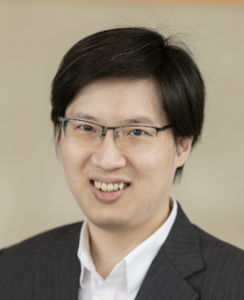 Biography: Dr. I-Kang Fu received his Ph.D degree from National Chiao-Tung University, Taiwan, in 2007. He is currently a Director of Standard Strategy in MediaTek, contributing to Beyond 5G standardization in 3GPP TSG-RAN, driving new technology initiatives such as cellular/satellite network integration, and exploring pre-6G technology trends. Prior to 5G, he had been actively contributing to B3G and 4G technologies standardization tasks in IEEE, 3GPP and certain regional standard organizations since 2005. He is currently serving as TAICS TC1 (Advanced Mobile Communication) Chairman position.
Biography: Dr. I-Kang Fu received his Ph.D degree from National Chiao-Tung University, Taiwan, in 2007. He is currently a Director of Standard Strategy in MediaTek, contributing to Beyond 5G standardization in 3GPP TSG-RAN, driving new technology initiatives such as cellular/satellite network integration, and exploring pre-6G technology trends. Prior to 5G, he had been actively contributing to B3G and 4G technologies standardization tasks in IEEE, 3GPP and certain regional standard organizations since 2005. He is currently serving as TAICS TC1 (Advanced Mobile Communication) Chairman position.
Prof. Hung-Yu Wei, Professor, Department of Electrical Engineering and Graduate Institute, Communications Engineering, National Taiwan University
 Biography: Hung-Yu Wei is a Professor in Department of Electrical Engineering and Graduate Institute of Communications Engineering, National Taiwan University. Currently, he serves as Associate Chair in Department of Electrical Engineering. He received the B.S. degree in electrical engineering from National Taiwan University in 1999. He received the M.S. and the Ph.D. degree in electrical engineering from Columbia University in 2001 and 2005 respectively. He was a summer intern at Telcordia Applied Research in 2000 and 2001. He was with NEC Labs America from 2003 to 2005. He joined Department of Electrical Engineering at the National Taiwan University in July 2005. His research interests include next-generation wireless broadband networks, IoT, vehicular networking, fog/edge computing, cross-layer design and optimization in wireless multimedia communications, and game theoretical models for communications networks.
Biography: Hung-Yu Wei is a Professor in Department of Electrical Engineering and Graduate Institute of Communications Engineering, National Taiwan University. Currently, he serves as Associate Chair in Department of Electrical Engineering. He received the B.S. degree in electrical engineering from National Taiwan University in 1999. He received the M.S. and the Ph.D. degree in electrical engineering from Columbia University in 2001 and 2005 respectively. He was a summer intern at Telcordia Applied Research in 2000 and 2001. He was with NEC Labs America from 2003 to 2005. He joined Department of Electrical Engineering at the National Taiwan University in July 2005. His research interests include next-generation wireless broadband networks, IoT, vehicular networking, fog/edge computing, cross-layer design and optimization in wireless multimedia communications, and game theoretical models for communications networks.
He received NTU Excellent Teaching Award (台大教學優良獎) in 2008 and 2018. He also received “Recruiting Outstanding Young Scholar Award” from the Foundation for the Advancement of Outstanding Scholarship (傑出人才發展基金會”積極爭取國外優秀青年學者獎助”) in 2006, K. T. Li Young Researcher Award (李國鼎青年研究獎) from ACM Taipei/Taiwan Chapter and The Institute of Information and Computing Machinery in 2012, Ministry of Science and Technology Research Project for Excellent Young Scholars (科技部優秀年輕學者計畫) in 2014, Excellent Young Engineer Award from the Chinese Institute of Electrical Engineering (中國電機工程學會優秀青年電機工程師獎) in 2014, Wu Ta You Memorial Award from MOST(吳大猷先生紀念獎) in 2015, and Outstanding Research Award from MOST(傑出研究獎) in 2020. He was a consulting member of Acts and Regulation Committee of National Communications Commission (國家通訊傳播委員會法規諮詢委員) during 2008~2009. He served as a division director in NTU Computer and Information Networking Center during 2016-2017. He has been actively participating in NGMN, IEEE 802.16, 3GPP, IEEE P1934, and IEEE P1935 standardization. He serves as Vice Chair of IEEE P1934 Working Group to standardize fog computing and networking architecture. He serves as Secretary for IEEE Fog/Edge Industry Community. He also serves as an Associate Editor for IEEE IoT journal. He is an IEEE certified Wireless Communications Professional. He was the Chair of IEEE VTS Taipei Chapter during 2016~2017. He is currently the Chair of IEEE P1935 working group for edge/fog management and orchestration standard.
Saifur Rahman, Founding Director, Advanced Research Institute and Joseph R. Loring Professor of Electrical and Computer Engineering, Virginia Tech
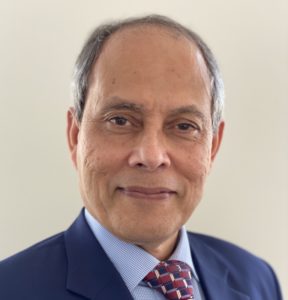 Biography: Professor Saifur Rahman is the founding director of the Advanced Research Institute at Virginia Tech, USA where he is the Joseph R. Loring professor of electrical and computer engineering. He also directs the Center for Energy and the Global Environment. He is the IEEE President-elect 2022, a Life Fellow of the IEEE and an IEEE Millennium Medal winner. He is the founding editor-in-chief of the IEEE Electrification Magazine and the IEEE Transactions on Sustainable Energy. He is the founder of BEM Controls, LLC, a Virginia (USA)-based software company providing building energy management solutions. He has served as the chair of the US National Science Foundation Advisory Committee for International Science and Engineering. He has published over 150 journal papers and has made over six hundred conference and invited presentations. In 2006 he served on the IEEE Board of Directors as the vice president for publications. He is a distinguished lecturer for the IEEE Power & Energy Society and has lectured on renewable energy, energy efficiency, smart grid, energy internet, blockchain, IoT sensor integration, etc. in over 30 countries. He has a PhD in electrical engineering from Virginia Tech.
Biography: Professor Saifur Rahman is the founding director of the Advanced Research Institute at Virginia Tech, USA where he is the Joseph R. Loring professor of electrical and computer engineering. He also directs the Center for Energy and the Global Environment. He is the IEEE President-elect 2022, a Life Fellow of the IEEE and an IEEE Millennium Medal winner. He is the founding editor-in-chief of the IEEE Electrification Magazine and the IEEE Transactions on Sustainable Energy. He is the founder of BEM Controls, LLC, a Virginia (USA)-based software company providing building energy management solutions. He has served as the chair of the US National Science Foundation Advisory Committee for International Science and Engineering. He has published over 150 journal papers and has made over six hundred conference and invited presentations. In 2006 he served on the IEEE Board of Directors as the vice president for publications. He is a distinguished lecturer for the IEEE Power & Energy Society and has lectured on renewable energy, energy efficiency, smart grid, energy internet, blockchain, IoT sensor integration, etc. in over 30 countries. He has a PhD in electrical engineering from Virginia Tech.
Mohammed Atiquzzaman, Edith Kinney Gaylord Presidential Professor, School of Computer Science, University of Oklahoma
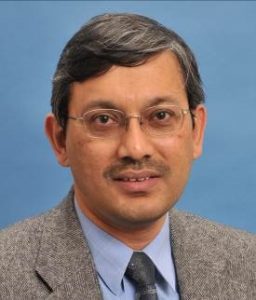 Biography: Mohammed Atiquzzaman obtained his M.S. and Ph.D. in Electrical Engineering and Electronics from the University of Manchester (UK) in 1984 and 1987, respectively. He currently holds the Edith J Kinney Gaylord Presidential professorship in the School of Computer Science at the University of Oklahoma.
Biography: Mohammed Atiquzzaman obtained his M.S. and Ph.D. in Electrical Engineering and Electronics from the University of Manchester (UK) in 1984 and 1987, respectively. He currently holds the Edith J Kinney Gaylord Presidential professorship in the School of Computer Science at the University of Oklahoma.
Dr. Atiquzzaman is the Editor-in-Chief of Journal of Networks and Computer Applications, the founding Editor-in-Chief of Vehicular Communications, and serves/served on the editorial boards of many journals including IEEE Communications Magazine, IEEE Transactions on Mobile Computing, IEEE JSAC, Real Time Imaging Journal, International Journal of Communication Networks and Distributed Systems and Journal of Sensor Networks and International Journal of Communication Systems. He co-chaired the IEEE High Performance Switching and Routing Symposium (2003, 2011), IEEE Globecom and ICC (2014, 2012, 2010, 2009, 2007, 2006), IEEE VTC (2013) and the SPIE Quality of Service over Next Generation Data Networks conferences (2001, 2002, 2003). He was the panels co-chair of INFOCOM’05, and is/has been in the program committee of many conferences such as INFOCOM, Globecom, ICCCN, ICCIT, Local Computer Networks, and serves on the review panels at the National Science Foundation.
Dr. Atiquzzaman received IEEE Communication Society’s Fred W. Ellersick Prize, IEEE Distinguished Technical Achievement Award for contributions in switching and routing, IEEE Satellite Communications Technical Contribution Award, and NASA Group Achievement Award for “outstanding work to further NASA Glenn Research Center’s effort in the area of Advanced Communications/Air Traffic Management’s Fiber Optic Signal Distribution for Aeronautical Communications” project. He is the co-author of the book “Performance of TCP/IP over ATM networks” and has over 270 refereed publications, available at www.cs.ou.edu/~atiq.
His current research interests are in areas of Internet of Things, wireless and mobile networks, ad hoc networks, satellite networks, vehicular communications, and optical communications. His research has been funded by over $10M from National Science Foundation (NSF), National Aeronautics and Space Administration (NASA), U.S. Air Force, Cisco, Honeywell, Oklahoma Department of Transportation and Oklahoma Highway Safety Office.
Tao Zhang, Manager, Emerging Network Technologies, National Institute of Standards and Technology (NIST)
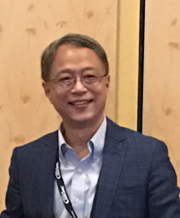 Biography: Dr. Tao Zhang, an IEEE Fellow, has been leading research, product development, and corporate strategies, which created disruptive innovations, new standards, and commercial products. He is leading Transformational Networks and Services in the Communications Technology Lab at NIST. He was the CTO for the Smart Connected Vehicles Business at Cisco Systems, and a Chief Scientist and Director of Research at Telcordia Technologies (formerly Bell Communications Research) where he led breakthrough research on 3G/4G wireless networks and vehicular networking. He has cofounded two influential industry consortia (the Open Fog Consortium and the Connected Vehicle Trade Association) and served as a founding Board Director for them. Tao holds about 60 US patents and coauthored two books (“Vehicle Safety Communications: Protocols, Security, and Privacy” and “IP-Based Next Generation Wireless Networks”), several book chapters. He served as the CIO and a Board Governor of the IEEE Communications Society and as a Distinguished Lecturer of the IEEE Vehicular Technology Society. He cofounded several international conferences and served on leadership roles for many conferences and journals.
Biography: Dr. Tao Zhang, an IEEE Fellow, has been leading research, product development, and corporate strategies, which created disruptive innovations, new standards, and commercial products. He is leading Transformational Networks and Services in the Communications Technology Lab at NIST. He was the CTO for the Smart Connected Vehicles Business at Cisco Systems, and a Chief Scientist and Director of Research at Telcordia Technologies (formerly Bell Communications Research) where he led breakthrough research on 3G/4G wireless networks and vehicular networking. He has cofounded two influential industry consortia (the Open Fog Consortium and the Connected Vehicle Trade Association) and served as a founding Board Director for them. Tao holds about 60 US patents and coauthored two books (“Vehicle Safety Communications: Protocols, Security, and Privacy” and “IP-Based Next Generation Wireless Networks”), several book chapters. He served as the CIO and a Board Governor of the IEEE Communications Society and as a Distinguished Lecturer of the IEEE Vehicular Technology Society. He cofounded several international conferences and served on leadership roles for many conferences and journals.
Mazin Yousif, Chief Technologist, Gainwell Technologies
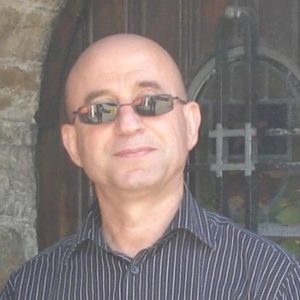 Biography: Dr. Yousif is a Chief Technologist at Gainwell Technologies. Before that, he was a technology executive at DXC Technology, T-Systems, International, IBM and Intel.
Biography: Dr. Yousif is a Chief Technologist at Gainwell Technologies. Before that, he was a technology executive at DXC Technology, T-Systems, International, IBM and Intel.
He served as a Technology Advisor, Board Member and investor for several startup companies. He chaired the Advisory Board of the European Research Consortium for Informatics and Mathematics (ERCIM). He was the Editor-In-Chief of the IEEE Cloud Computing Magazine;, and now the IEEE Cloud Continuum. He founded the NSF Industry/University Cooperative research Center for Autonomic Computing. He was an adjunct professor in several universities including Duke, NCSU, OGI and Arizona. He has served as the General Chair or Program Chair for many conferences and serves in the editorial board of many journals. He is a frequent speaker in academic and industry conferences on topics related to cloud computing, IoT/IIoT, Edge and Cloud Continuum. He has also published extensively (100+ articles) and was an IEEE Distinguished Visitors Program speaker from 2008 – 2013.
Dr. Yousif finished his Master (Electrical Engineering) and Ph.D. (Computer Engineering) degrees from the Pennsylvania State University.
Jianwei Huang, Presidential Chair Professor and Associate Dean, School of Science and Engineering, The Chinese University of Hong Kong, Shenzhen
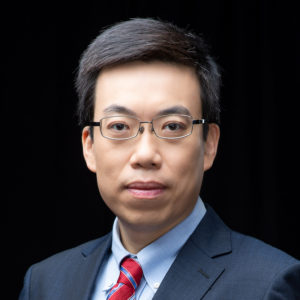 Biography: Jianwei Huang received the Ph.D. degree in ECE from Northwestern University in 2005, and worked as a Postdoc Research Associate in Princeton University during 2005-2007. From 2007 until 2018, he was on the faculty of Department of Information Engineering, The Chinese University of Hong Kong. Since 2019, he has been on the faculty at The Chinese University of Hong Kong, Shenzhen, where he is a Presidential Chair Professor and an Associate Dean of the School of Science and Engineering. He also serves as a Vice President of Shenzhen Institute of Artificial Intelligence and Robotics for Society. His research interests are in the area of network optimization, network economics, and network science, with applications in communication networks, energy networks, data markets, crowd intelligence, and related fields. He has published more than 300 papers in leading venues, with a Google Scholar citation of 14000+ and an H-index of 59. He has co-authored 10 Best Paper Awards, including the 2011 IEEE Marconi Prize Paper Award in Wireless Communications. He has co-authored seven books, including the textbook on “Wireless Network Pricing.” He is an IEEE Fellow, and was an IEEE ComSoc Distinguished Lecturer and a Clarivate Web of Science Highly Cited Researcher. He is the Editor-in-Chief of IEEE Transactions on Network Science and Engineering, and was the Associate Editor-in-Chief of IEEE Open Journal of the Communications Society.
Biography: Jianwei Huang received the Ph.D. degree in ECE from Northwestern University in 2005, and worked as a Postdoc Research Associate in Princeton University during 2005-2007. From 2007 until 2018, he was on the faculty of Department of Information Engineering, The Chinese University of Hong Kong. Since 2019, he has been on the faculty at The Chinese University of Hong Kong, Shenzhen, where he is a Presidential Chair Professor and an Associate Dean of the School of Science and Engineering. He also serves as a Vice President of Shenzhen Institute of Artificial Intelligence and Robotics for Society. His research interests are in the area of network optimization, network economics, and network science, with applications in communication networks, energy networks, data markets, crowd intelligence, and related fields. He has published more than 300 papers in leading venues, with a Google Scholar citation of 14000+ and an H-index of 59. He has co-authored 10 Best Paper Awards, including the 2011 IEEE Marconi Prize Paper Award in Wireless Communications. He has co-authored seven books, including the textbook on “Wireless Network Pricing.” He is an IEEE Fellow, and was an IEEE ComSoc Distinguished Lecturer and a Clarivate Web of Science Highly Cited Researcher. He is the Editor-in-Chief of IEEE Transactions on Network Science and Engineering, and was the Associate Editor-in-Chief of IEEE Open Journal of the Communications Society.
Sibesh Bhattacharya, Principal Infrastructure Specialist (ICT), Pacific Department, ADB
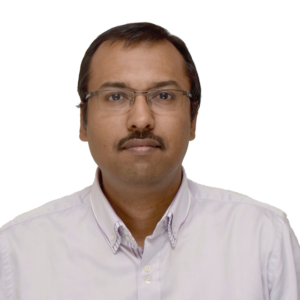 Biography: Sibesh Bhattacharya, Principal Infrastructure Specialist -ICT, is leading the ICT-driven engagements in the Pacific region. He has processed and implemented a number of large and complex ICT infrastructure projects and Technical Assistances in the region. He was instrumental in designing the ADB’s ICT engagement approach in the Pacific and helped the countries to strategize their critical ICT investments. He has successfully brought multiple countries and development partners together to design cost effective and sustainable infrastructure financing and management solutions. He is a frequent speaker and panelist at regional ICT related seminars and conferences.
Biography: Sibesh Bhattacharya, Principal Infrastructure Specialist -ICT, is leading the ICT-driven engagements in the Pacific region. He has processed and implemented a number of large and complex ICT infrastructure projects and Technical Assistances in the region. He was instrumental in designing the ADB’s ICT engagement approach in the Pacific and helped the countries to strategize their critical ICT investments. He has successfully brought multiple countries and development partners together to design cost effective and sustainable infrastructure financing and management solutions. He is a frequent speaker and panelist at regional ICT related seminars and conferences.
Laura Hosman, Associate Professor, Arizona State University
Biography: Dr. Laura Hosman is Associate Professor at Arizona State University, holding a joint appointment in the School for the Future of Innovation in Society and in The Polytechnic School. Her action-oriented work focuses on the role for new technologies in developing countries, particularly in education. She brings her passion for experiential learning to the classroom and beyond, and prioritizes bringing students to the field to carry out technology implementation, training, and impact evaluation. Hosman is also founder and co-director of SolarSPELL, an offline solar-powered digital library and information literacy initiative designed for low-resource locations. SolarSPELL (Solar Powered Educational Learning Library) combines relevant content, appropriate technology, and local capacity-building.
Ernesto Ciaramella, Full Professor of Telecommunications, Scuola Superiore Sant’Anna
Biography: Ernesto Ciaramella is currently a Full Professor of telecommunications at Scuola Superiore Sant’Anna, Pisa, Italy. He previously worked at Alcatel, Fondazione Ugo Bordoni, Centre for Studies and Laboratories in Telecommunications and CNIT. His research interests include various areas of research in optical communications (components, systems, networks). His main research contributions are related to devices for the regeneration of the optical signals, design of WDM systems for transport and access, and free-space optical systems (optical wireless). He participated in several European research projects (OPEN, PHOTOS, ATLAS, NOBEL, SUNRISE, INFIERI). He coordinated the PRIN TOSCA and the EU-FP7 project COCONUT, on coherent systems for WDM PON access networks. He is currently a Principal Investigator of ESA- TOWS Project. He is a Co-Founder of Bright101. He served as a Member of the Technical Programme Committee of OFC and ECOC, was the Lead Chair of “Photonics in Switching 2012” and the Co-Chair of the TPC of ACP 2012. He was a Organizer and the Co-chair of the first International Workshop on Optical Wireless (Pisa). He is author or coauthor of about 200 publications and 24 international patents.(Based on document published on 13 January 2020).
Joe Weinman, XFORMA LLC
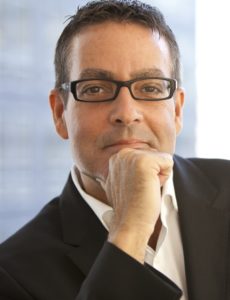 Biography: Bio: Joe Weinman currently serves on the advisory boards of EDJX, Syntropy Networks, RampRate, Bit Trap, the Pacific Telecommunications Council, and the Pace University Lubin School of Business. He was most recently Senior Vice President at Telx (now Digital Realty), and has held technical and executive positions at Bell Labs, AT&T, and HP, in areas such as corporate strategy, R&D and innovation management, partner and business development, product management, operations, and sales and marketing. He’s been awarded 27 patents in areas such as pseudoternary line coding, cellular telephony, distributed computing, homomorphic encryption, search algorithms, media and gaming, and consumer products.
Biography: Bio: Joe Weinman currently serves on the advisory boards of EDJX, Syntropy Networks, RampRate, Bit Trap, the Pacific Telecommunications Council, and the Pace University Lubin School of Business. He was most recently Senior Vice President at Telx (now Digital Realty), and has held technical and executive positions at Bell Labs, AT&T, and HP, in areas such as corporate strategy, R&D and innovation management, partner and business development, product management, operations, and sales and marketing. He’s been awarded 27 patents in areas such as pseudoternary line coding, cellular telephony, distributed computing, homomorphic encryption, search algorithms, media and gaming, and consumer products.
He has keynoted / presented at over 400 industry and academic events and is the author of the Amazon #1 New Release Digital Disciplines: Attaining Market Leadership via the Cloud, Big Data, Social, Mobile, and the Internet of Things (Wiley CIO, 2015), also available in Chinese: 新动能 新法则 (PTPress, 2016); Cloudonomics: The Business Value of Cloud Computing (Wiley, 2012), also translated as 云经济学 (PTPress, 2014) and 云端时代 (PTPress, 2015); co-editor of Fog and Fogonomics: Challenges and Practices of Fog Computing, Communication, Networking, Strategy, and Economics (Wiley ICT Series); and a contributor to Regulating the Cloud: Policy for Computing Infrastructure (MIT Press, 2014) and Guide to Big Data Applications (Springer Studies in Big Data, 2018), and over 100 other articles, which have appeared in the Harvard Business Review, Forbes, CIO, InformationWeek, The New York Times, Business Week, Entrepreneur, Wired, CNN Money, and elsewhere.
He was the contributing editor of the cloud economics column for IEEE Cloud Computing magazine for five years, and is now the contributing editor for Digital Strategy and Economics of the new IEEE Cloud Continuum, and was recently named Vice Chair of the IEEE 5G Industry Advisory Board, as well as a member of the IEEE Fog/Edge Industry Community Advisory Board.
He has a BS and MS in Computer Science from Cornell University and UW-Madison and has completed executive education at the International Institute for Management Development, Lausanne, Harvard Business School, MIT Sloan School of Management, and Pace University Lubin School of Business.
Heikki Almay, Karugrid Co-Founder
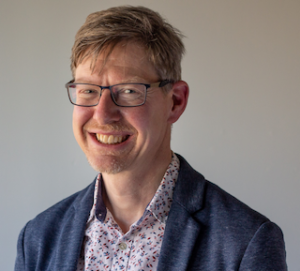 Biography: Heikki is passionate about decentralized solutions, i.e. turning mobile networks and off-grid power systems into consumer products that can be installed and operated without technical expertise.
Biography: Heikki is passionate about decentralized solutions, i.e. turning mobile networks and off-grid power systems into consumer products that can be installed and operated without technical expertise.
Heikki has more than 30 years of experience in telecom. He is one of the pioneers in IP connectivity for mobile networks with publications and patents in this field.
Prior to co-founding Poutanet, SmartPTO and Karugrid he was leading mobile network architecture design at Nokia and pushing open source and openness initiatives including the Telecom Infra Project (TIP).
Jeewika Ranaweera, Principal Hardware Engineer, Oracle
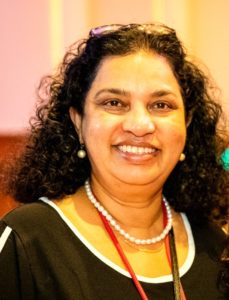 Biography: Jeewika Ranaweera is a principal hardware engineer working on high-speed SPARC microprocessors at Oracle. She is an author, an illustrator, an inventor, a sustainability champion, a frequent conference speaker and an avid volunteer for various women in tech organizations and programs.
Biography: Jeewika Ranaweera is a principal hardware engineer working on high-speed SPARC microprocessors at Oracle. She is an author, an illustrator, an inventor, a sustainability champion, a frequent conference speaker and an avid volunteer for various women in tech organizations and programs.
Hamed Heyhat, Vice President & General Manager, North America | Smart Energy, Honeywell
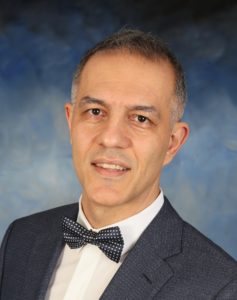 Biography: Hamed Heyhat has over 25 years of leadership experience in the energy industry as a business executive of a multinational corporation. He led multiple businesses across different regions in Middles East, North, and Latin America. He is currently Vice President and General Manager of Honeywell Smart Energy for North America and running the business wing to wing for this division of Honeywell. Before his current role, he was the General Manager for General Electric (GE) Grid Solution for North America.
Biography: Hamed Heyhat has over 25 years of leadership experience in the energy industry as a business executive of a multinational corporation. He led multiple businesses across different regions in Middles East, North, and Latin America. He is currently Vice President and General Manager of Honeywell Smart Energy for North America and running the business wing to wing for this division of Honeywell. Before his current role, he was the General Manager for General Electric (GE) Grid Solution for North America.
Corey Shaffer, Senior member, Network Assurance, Verizon Wireless
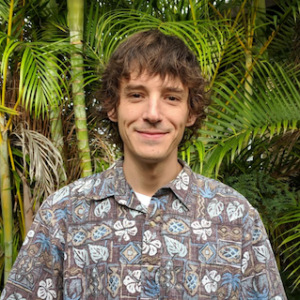 Biography: Corey Shaffer is the Sr. Manager of Network Operations for Verizon Wireless in Hawaii. His responsibilities include monitoring, maintaining, and upgrading Verizon’s statewide wireless network which consists of hundreds of cell sites spread across the islands plus a central switching and data facility located on Oahu. Corey has worked as a manager and engineer at Verizon for over 15 years, in roles supporting both the local Hawaii network and Verizon’s nationwide voice and data network. He has a BSEE from the University of Pittsburgh and lives in Waialua with his wife and 3 children.
Biography: Corey Shaffer is the Sr. Manager of Network Operations for Verizon Wireless in Hawaii. His responsibilities include monitoring, maintaining, and upgrading Verizon’s statewide wireless network which consists of hundreds of cell sites spread across the islands plus a central switching and data facility located on Oahu. Corey has worked as a manager and engineer at Verizon for over 15 years, in roles supporting both the local Hawaii network and Verizon’s nationwide voice and data network. He has a BSEE from the University of Pittsburgh and lives in Waialua with his wife and 3 children.
Rajesh Hegde, Professor and Head of the Department of Electrical Engineering, Indian Institute of Technology, Kanpur
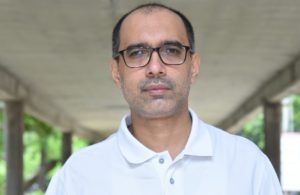 Biography: Rajesh M. Hegde joined IIT Kanpur as an Assistant Professor of EE in May 2008 after obtaining a Ph.D degree in Computer Science and Engineering from the Indian Institute of Technology Madras in 2005. He became an Associate Professor in 2012 and a Full Professor of EE in July 2016. He currently holds the Umang Gupta Chair position at IIT Kanpur. He was also awarded the P.K. Kelkar Research Fellowship between 2009-13. Between 2005 to 2008, He worked as a Researcher at the California Institute of Telecommunication and Information Technology (CALIT2) and concurrently as a lecturer (2007) at the Department of Electrical Engineering at the University of California San Diego, USA. Prior to 2005, He was involved with teaching undergraduate engineering courses at various levels in India. He was elected as a Senior Member of IEEE in 2017 and is an affiliate member of IEEE-AASP technical committee. He has established two research Laboratories at IIT Kanpur namely, Multimodal Information Systems Lab and Wireless Sensor Networks Lab with funding obtained from BSNL, DST, MietY, LG Soft, Samsung Research and Indian space research organization. He has published prolifically at several international conferences and journals in the area of signal processing, communication and networks. He is also a member of the National working groups of ITU-T (NWG-16 and NSG-6) on developing multimedia applications. He actively teaches both undergraduate and post graduate courses related to electronics, digital signal processing, statistical signal processing, array signal processing, wireless sensor networks, and digital speech processing. Additional biographic information can be found at the URL: http://home.iitk.ac.in/~rhegde.
Biography: Rajesh M. Hegde joined IIT Kanpur as an Assistant Professor of EE in May 2008 after obtaining a Ph.D degree in Computer Science and Engineering from the Indian Institute of Technology Madras in 2005. He became an Associate Professor in 2012 and a Full Professor of EE in July 2016. He currently holds the Umang Gupta Chair position at IIT Kanpur. He was also awarded the P.K. Kelkar Research Fellowship between 2009-13. Between 2005 to 2008, He worked as a Researcher at the California Institute of Telecommunication and Information Technology (CALIT2) and concurrently as a lecturer (2007) at the Department of Electrical Engineering at the University of California San Diego, USA. Prior to 2005, He was involved with teaching undergraduate engineering courses at various levels in India. He was elected as a Senior Member of IEEE in 2017 and is an affiliate member of IEEE-AASP technical committee. He has established two research Laboratories at IIT Kanpur namely, Multimodal Information Systems Lab and Wireless Sensor Networks Lab with funding obtained from BSNL, DST, MietY, LG Soft, Samsung Research and Indian space research organization. He has published prolifically at several international conferences and journals in the area of signal processing, communication and networks. He is also a member of the National working groups of ITU-T (NWG-16 and NSG-6) on developing multimedia applications. He actively teaches both undergraduate and post graduate courses related to electronics, digital signal processing, statistical signal processing, array signal processing, wireless sensor networks, and digital speech processing. Additional biographic information can be found at the URL: http://home.iitk.ac.in/~rhegde.
Toby Cumberbatch, Professor of Electrical Engineering, The Cooper Union
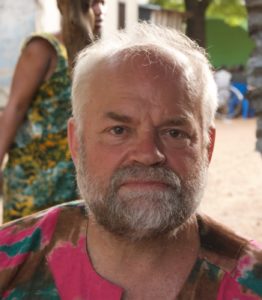 Biography: Toby Cumberbatch was a professor of electrical engineering at The Cooper Union in New York City from 1994 to 2018. His principal research interests are developing engineering practices to address the needs of impoverished, marginalized communities through Engineering for the Middle of Nowhere. In 2003 he took his first group of students to a village in West Africa where he had lived as a child. From these trips and other classes emerged SociaLite Lighting Systems, a small 501c3 that manufactures and installs lighting systems and micro-grids for communities in regions without infrastructure. Dr. Cumberbatch continues to develop these systems and support SociaLite’s operations in Ghana and beyond.
Biography: Toby Cumberbatch was a professor of electrical engineering at The Cooper Union in New York City from 1994 to 2018. His principal research interests are developing engineering practices to address the needs of impoverished, marginalized communities through Engineering for the Middle of Nowhere. In 2003 he took his first group of students to a village in West Africa where he had lived as a child. From these trips and other classes emerged SociaLite Lighting Systems, a small 501c3 that manufactures and installs lighting systems and micro-grids for communities in regions without infrastructure. Dr. Cumberbatch continues to develop these systems and support SociaLite’s operations in Ghana and beyond.
Christopher G. Brinton, Assistant Professor, Elmore Family School of Electrical and Computer Engineering, Purdue University
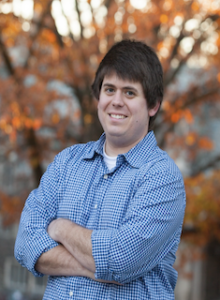 Biography: Christopher G. Brinton (S’08, M’16, SM’20) is an Assistant Professor in the School of Electrical and Computer Engineering at Purdue University. His research interest is at the intersection of machine learning and networked systems, specifically in distributed machine learning, fog/edge network intelligence, and data-driven network optimization. Since joining Purdue ECE in fall 2019, Dr. Brinton has won a 2019 Purdue Seed for Success Award, the 2020 Purdue ECE Outstanding Faculty Mentor Award, the 2020 Ruth and Joel Spira Outstanding Teacher Award, and roughly $5M in sponsored research projects. He currently serves as an Associate Editor for IEEE Transactions on Wireless Communications, in the ML and AI for wireless area. Prior to joining Purdue, Dr. Brinton was the Associate Director of the EDGE Lab and a Lecturer of Electrical Engineering at Princeton University. He also co-founded Zoomi Inc., a big data startup company that has provided learning optimization to more than one million users worldwide and holds a US Patent in machine learning for individualized learning. His book The Power of Networks: 6 Principles That Connect our Lives and associated Massive Open Online Courses (MOOCs) have reached over 400,000 students to date. Dr. Brinton received the PhD (with honors) and MS Degrees from Princeton in 2016 and 2013, respectively, both in Electrical Engineering.
Biography: Christopher G. Brinton (S’08, M’16, SM’20) is an Assistant Professor in the School of Electrical and Computer Engineering at Purdue University. His research interest is at the intersection of machine learning and networked systems, specifically in distributed machine learning, fog/edge network intelligence, and data-driven network optimization. Since joining Purdue ECE in fall 2019, Dr. Brinton has won a 2019 Purdue Seed for Success Award, the 2020 Purdue ECE Outstanding Faculty Mentor Award, the 2020 Ruth and Joel Spira Outstanding Teacher Award, and roughly $5M in sponsored research projects. He currently serves as an Associate Editor for IEEE Transactions on Wireless Communications, in the ML and AI for wireless area. Prior to joining Purdue, Dr. Brinton was the Associate Director of the EDGE Lab and a Lecturer of Electrical Engineering at Princeton University. He also co-founded Zoomi Inc., a big data startup company that has provided learning optimization to more than one million users worldwide and holds a US Patent in machine learning for individualized learning. His book The Power of Networks: 6 Principles That Connect our Lives and associated Massive Open Online Courses (MOOCs) have reached over 400,000 students to date. Dr. Brinton received the PhD (with honors) and MS Degrees from Princeton in 2016 and 2013, respectively, both in Electrical Engineering.
Narendra Mangra, Principal, GlobeNet LLC
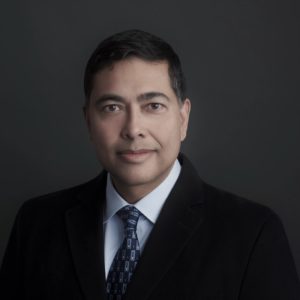 Biography: Narendra Mangra is the Principal at GlobeNet LLC where he provides advisory and consulting services for clients in academia, industry, and government. He has both a deep foundation in the wireless telecommunications ecosystem and wide experience across mobile and fixed broadband telecommunications, public safety, agriculture, transportation, and health care ecosystems. His experience spans several key roles within the end-to-end mobile ecosystem, mobile network design and deployment lifecycle, procurement lifecycle, and the program/project management lifecycles.
Biography: Narendra Mangra is the Principal at GlobeNet LLC where he provides advisory and consulting services for clients in academia, industry, and government. He has both a deep foundation in the wireless telecommunications ecosystem and wide experience across mobile and fixed broadband telecommunications, public safety, agriculture, transportation, and health care ecosystems. His experience spans several key roles within the end-to-end mobile ecosystem, mobile network design and deployment lifecycle, procurement lifecycle, and the program/project management lifecycles.
Narendra is also the Co-Chair for several IEEE technology roadmap, standards development, and industry connection activities that include the Future Networks International Network Generations Roadmap (INGR), Applications and Services WG, Young Professionals Education, IEEE SA P1950.1 Smart Cities Architecture Standards Development, Transdisciplinary Framework Industry Connections, and the Telehealth Industry Connections. He also contributes to the Public Safety Task Force initiative. His current interests include comprehensive transdisciplinary frameworks, 5G and technology convergence, smart regions, and related ecosystems.
Elizabeth Fife, Associate Professor of Technical Communication Practice, Viterbi School of Engineering and the Marshall School of Business, University of Southern California
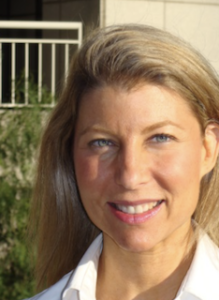 Biography: Dr. Elizabeth Fife has taught technical and professional communications in the Viterbi School of Engineering and the Marshall School of Business at USC for over 20 years. Elizabeth has developed and taught specialized modules, workshops and courses for companies in the information and communications technology (ICT) industry and for institutions in the Asia Pacific region (KAIST, Yonsei University, SKKU, Tokyo University, Seoul University).
Biography: Dr. Elizabeth Fife has taught technical and professional communications in the Viterbi School of Engineering and the Marshall School of Business at USC for over 20 years. Elizabeth has developed and taught specialized modules, workshops and courses for companies in the information and communications technology (ICT) industry and for institutions in the Asia Pacific region (KAIST, Yonsei University, SKKU, Tokyo University, Seoul University).
She has carried out grant-based and funded studies for Cisco, AT&T, Intel and numerous global companies in the area of telecommunications and emerging economies (ICT4D). As editor of the Pacific Telecommunications Council (PTC) Annual Report on Broadband, she has produced a series of studies on the development of telecom markets in Southeast Asia that can be downloaded from www.ptc.org Expertise areas: communication in collaborative and multidisciplinary environments; ICT4D; open innovation; communication in multicultural organizations; technical and scientific writing and presenting for academia and industry.
Lin Gao, Associate Professor, School of Electronics and Information Engineering, Harbin Institute of Technology
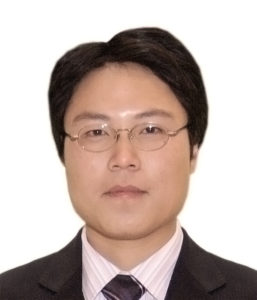 Biography: Lin Gao received the Ph.D. degree in Electronic Engineering from Shanghai Jiao Tong University in 2010 and worked as a Postdoc Research Fellow in The Chinese University of Hong Kong during 2010-2015. Since 2015, he has been an Associate Professor in the Department of Electronics and Information Engineering at Harbin Institute of Technology, Shenzhen, China. His research interests are in the interdisciplinary field of wireless communication networks, optimizations, and economics, with particular focus on the network intelligence, network optimization, machine learning, mechanism design, and game theory. He has published more than 100 papers in leading international journals and conference proceedings of communications and networking, with a total citation of 3500+ in Google Scholar. He has also co-authored 3 books in prestigious publishers and received 4 Best (Student) Paper Awards from leading international conference proceedings. He received the IEEE ComSoc Asia-Pacific Outstanding Young Researcher Award in 2016.
Biography: Lin Gao received the Ph.D. degree in Electronic Engineering from Shanghai Jiao Tong University in 2010 and worked as a Postdoc Research Fellow in The Chinese University of Hong Kong during 2010-2015. Since 2015, he has been an Associate Professor in the Department of Electronics and Information Engineering at Harbin Institute of Technology, Shenzhen, China. His research interests are in the interdisciplinary field of wireless communication networks, optimizations, and economics, with particular focus on the network intelligence, network optimization, machine learning, mechanism design, and game theory. He has published more than 100 papers in leading international journals and conference proceedings of communications and networking, with a total citation of 3500+ in Google Scholar. He has also co-authored 3 books in prestigious publishers and received 4 Best (Student) Paper Awards from leading international conference proceedings. He received the IEEE ComSoc Asia-Pacific Outstanding Young Researcher Award in 2016.
Jim Laclair, Chief Information Officer, Punahou School, Honolulu
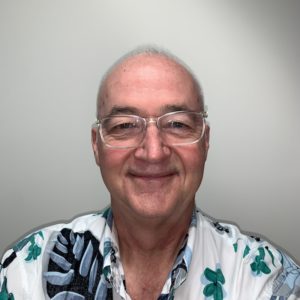 Biography: Jim LaClair has over 40 years’ experience working in and around the technology industry. He has held various senior leadership roles at both regional and national communication companies. Through his consulting company Jim worked in State Government, education and health care industries.
Biography: Jim LaClair has over 40 years’ experience working in and around the technology industry. He has held various senior leadership roles at both regional and national communication companies. Through his consulting company Jim worked in State Government, education and health care industries.
Jim specializes in formulating transformation strategies where business vision is achievable by thoughtful and systematic integration of technologies with business process and organizational management. He served terms as a Governor nominated appointee on the State of Hawaii’s Enhanced Wireless E911 Board of Directors. He also served terms on the Hawaii High Technology Develop Corporation (HTDC) Board, and the Natural Energy Labs Hawaii Authority (NELHA) Board.
Jim is currently Chief Information Officer at Punahou School.
Vincent Kaabunga, Director, Smart Metrics Inc.
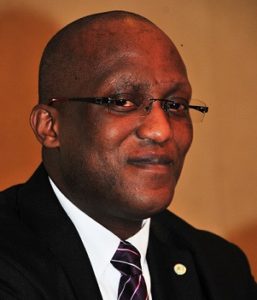 Biography: Vincent Kaabunga is a Knowledge Management and Organizational Development Specialist with cross-training in Engineering, Management and M&E. Vincent is a Telecommunications Engineer and a Senior Member of the IEEE. He has worked extensively in a professional capacity across Eastern and Southern Africa, and in South East Asia. He has over 20 years of experience in sustainable development and organizational capacity development. He studied Electrical Engineering at Makerere University and pursued post-graduate studies in Information Technology at the University of Pretoria and Strategic Business Management training at the Strathmore Business School.
Biography: Vincent Kaabunga is a Knowledge Management and Organizational Development Specialist with cross-training in Engineering, Management and M&E. Vincent is a Telecommunications Engineer and a Senior Member of the IEEE. He has worked extensively in a professional capacity across Eastern and Southern Africa, and in South East Asia. He has over 20 years of experience in sustainable development and organizational capacity development. He studied Electrical Engineering at Makerere University and pursued post-graduate studies in Information Technology at the University of Pretoria and Strategic Business Management training at the Strathmore Business School.
Vincent is passionate about driving Digital Transformation in Africa and in the Future of Work. He works extensively with young people, empowering them to develop their entrepreneurship skills and assisting them to be career-ready for the workplace of tomorrow.
He is a member of the IEEE Communications Society, the IEEE Computer Society, the IEEE Standards Association and IEEE Women in Engineering. He has served as liaison to the IEEE Board of Directors, Chair of the IEEE Kenya Section, and in various regional capacities. He has actively led and supported efforts on the ground that have seen the formation of new IEEE Sections, Student Branches, local Technical Chapters and, most recently, the IEEE Africa Council.
Joel Myers, CEO, DOMILA Limited
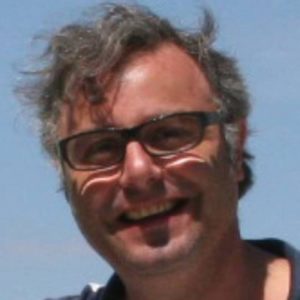 Biography: Leading technologist specializing in the creation and development of innovation technology solutions in the communications and management of services in Cultural Heritage, Tourism, and since 2015 in Business Networking. His company, HoozAround Corp. is currently commercialising a mobile application called HoozAroundTM. This App offers very close-proximity networking for users to carry out business and social networking based on profile matching needs or interests in real-time, indoors and outdoors. Its aim is to bring people together that would otherwise never meet, face-to-face, in order to create new and more efficient opportunities to grow personally, socially as a city-wide community and in developing business. The app was successfully piloted at the IFA Berlin consumer electronics trade fair in 2017 and at the IEEE World Forum on IoT in February 2018 (Singapore). Over the past few years Joel Myers has been focusing on the redefinition of the “Internet of People” exploring the goals of the smart city industry movement juxtaposed with the need for humanity to remain connected as physical people. The work carried out by Joel Myers has been published in international newspapers and journals such as the BBC, New York Times, Hong Times, the Hindu Times, Wired, and Forbes Magazine.
Biography: Leading technologist specializing in the creation and development of innovation technology solutions in the communications and management of services in Cultural Heritage, Tourism, and since 2015 in Business Networking. His company, HoozAround Corp. is currently commercialising a mobile application called HoozAroundTM. This App offers very close-proximity networking for users to carry out business and social networking based on profile matching needs or interests in real-time, indoors and outdoors. Its aim is to bring people together that would otherwise never meet, face-to-face, in order to create new and more efficient opportunities to grow personally, socially as a city-wide community and in developing business. The app was successfully piloted at the IFA Berlin consumer electronics trade fair in 2017 and at the IEEE World Forum on IoT in February 2018 (Singapore). Over the past few years Joel Myers has been focusing on the redefinition of the “Internet of People” exploring the goals of the smart city industry movement juxtaposed with the need for humanity to remain connected as physical people. The work carried out by Joel Myers has been published in international newspapers and journals such as the BBC, New York Times, Hong Times, the Hindu Times, Wired, and Forbes Magazine.
Mohamed Essaaidi, Professor, ENSIAS, Mohammed V University
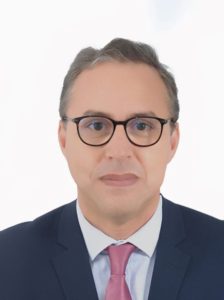 Biography: Mohamed Essaaidi is an EEE Senior Member, Chief of Party of Interactive Digital Center Morocco and a Professor and past Dean of ENSIAS College of IT Engineering of Mohammed V University, Rabat, Morocco , Past Director of International Cooperation at the Ministry of General Affairs & Governance, Morocco (2019), and past faculty member (Professor & Assistant Professor) at the Faculty of Science of Abdelmalek Essaadi University, Tetuan, Morocco (1993-2011).
Biography: Mohamed Essaaidi is an EEE Senior Member, Chief of Party of Interactive Digital Center Morocco and a Professor and past Dean of ENSIAS College of IT Engineering of Mohammed V University, Rabat, Morocco , Past Director of International Cooperation at the Ministry of General Affairs & Governance, Morocco (2019), and past faculty member (Professor & Assistant Professor) at the Faculty of Science of Abdelmalek Essaadi University, Tetuan, Morocco (1993-2011).
He is IEEE Global Cities Alliance, MEA Chairman (2021-2022), IEEE Humanitarian Activities Committee (HAC) Assessment Committee Member (2021-2022), IEEE EAB Teaching Excellence Editorial Hub, Member (2021-2022).
He is the founder and past Chairman of the IEEE Morocco Section (2005-2016), co-founder and chair of IEEE Morocco APS/MTT-S joint Chapter (2005-2010), IEEE Communications / Computer Society Chapter (2006-2008) and IEEE Education Society Morocco Chapter chair from 2007 to 2009.
He has been a member of Committee of Global Accreditation activities of IEEE Education Activities Board (2017-2018). He has been also Director of the Morocco Office of Arab Science and Technology Foundation, ASTF (2006-2009) and the Coordinator of ASTF RD&I Network of Electro-Technology (2006 – 2008).
He has authored and co-authored 10 books and more than 200 papers in international refereed journals and conferences in the field of Electrical and Computer engineering and its diverse applications including smart homes, smart mobility smart grid and smart cities. He has been Guest Editor of several international journals. He is also an active member of the editorial boards of several international journals in the same fields mentioned above.
Furthermore, Prof. Essaaidi is the founder and the General Chair / co-chair of several IEEE technically sponsored international conferences such as Information and Communication Technologies International Symposium (2005, 2007), International Conference of Multimedia Computing and Systems (2009-2016). He also co-organized and co-chaired IEEE Smart Cities Summit in May 2020, the US National Academies 5th Arab American Science, Engineering and Medicine Frontiers Symposium in November 2017, Rabat, Morocco and US NSF sponsored workshop on Smart Cities in January 2016 in Rabat, Morocco. He has also served in the Organizing committees and TPC and presented keynote talks at many other international conferences worldwide.
He holds 10 patents in the field ICT. Some of these patents received several international innovation awards. He was also a member of the IEEE 802.16 Sponsor Ballot Pool of IEEE Standard Association that defined the technical specifications for WiMAX, and of that of IEEE P2784 – Smart City Planning and Technology Guide Work Group (2020-2021).
Prof. Essaaidi supervised several Masters and PhDs theses and he has been the principal investigator and the project manager for several research projects in the framework of national and international programs.
Moreover, in the framework of his position as the director of International Cooperation in the Ministry of General Affairs and Governance, he was extensively involved in the coordination of the World Bank Morocco Country Partnership Framework (2019-2024) and OECD Morocco Country Program (2019-2021) among other international cooperation programs.
William Emery, Emeritus Professor, Smead Aerospace Eng. Sci., Dept., University of Colorado, Boulder
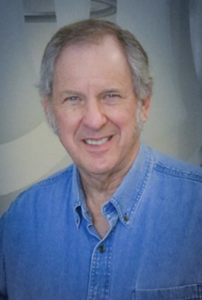 Biography: William (Bill) Emery received his PhD in Physical Oceanography from the University of Hawaii in 1975. After working at Texas A&M University for two years he moved to the University of British Columbia in 1978 where he created a Satellite Oceanography facility/education/research program. He left there in 1986 and was appointed tenured full professor in Aerospace Engineering Sciences at the University of Colorado in 1987. He is an adjunct professor of informatics at Tor Vergata University in Rome and an adjunct professor of geography/marine science at the University of Hawaii in Hilo. He has authored over 220-refereed publications and 3 textbooks in addition to having given 200 conference papers. He has published 2 popular books. He also translated 3 science volumes from German to English. He is a fellow of the IEEE (2002), the American Meteorological Society (2010), the American Astronautical Society (2011) and the American Geophysical Union (2012). He was recently elected to the IEEE TAB Hall of Honor (2020).
Biography: William (Bill) Emery received his PhD in Physical Oceanography from the University of Hawaii in 1975. After working at Texas A&M University for two years he moved to the University of British Columbia in 1978 where he created a Satellite Oceanography facility/education/research program. He left there in 1986 and was appointed tenured full professor in Aerospace Engineering Sciences at the University of Colorado in 1987. He is an adjunct professor of informatics at Tor Vergata University in Rome and an adjunct professor of geography/marine science at the University of Hawaii in Hilo. He has authored over 220-refereed publications and 3 textbooks in addition to having given 200 conference papers. He has published 2 popular books. He also translated 3 science volumes from German to English. He is a fellow of the IEEE (2002), the American Meteorological Society (2010), the American Astronautical Society (2011) and the American Geophysical Union (2012). He was recently elected to the IEEE TAB Hall of Honor (2020).
Oleg Sinkin, Distinguished Member of Technical Staff, SubCom
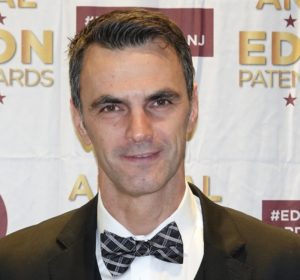 Biography: Oleg V. Sinkin received the M.S. degree from MIPT, Russia, in 1999 and the Ph.D. degree from UMBC, USA, in 2006. During 1996–1999, he was with IPG Photonics Moscow, designing lasers and amplifiers. During 1999–2006 at UMBC, he was studying optical fiber communications systems. Since 2006, he is working on models, high-capacity systems and techno-economics at SubCom, USA
Biography: Oleg V. Sinkin received the M.S. degree from MIPT, Russia, in 1999 and the Ph.D. degree from UMBC, USA, in 2006. During 1996–1999, he was with IPG Photonics Moscow, designing lasers and amplifiers. During 1999–2006 at UMBC, he was studying optical fiber communications systems. Since 2006, he is working on models, high-capacity systems and techno-economics at SubCom, USA
Witold Kinsner, Professor, Department of Electrical and Computer Engineering, University of Manitoba
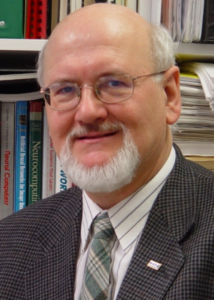 Biography: Witold Kinsner is the Co-Chair of the IEEE Low-Earth-Orbit (LEO) Satellites and Systems Small Project sponsored by the IEEE Future Directions Committee (FDC). Dr Kinsner is a Professor in the Department of Electrical and Computer Engineering, University of Manitoba, Winnipeg, Canada. He also held faculty positions at McMaster University in Hamilton and McGill University in Montréal and was a co-founder and Director of Research of the first Industrial Applications of Microelectronics Centre from 1979 to 1987. One of his sabbaticals was dedicated to designing self-synchronizing memories with graceful degradation at National Semiconductor in Santa Clara, CA. He has been very active in research and education in several areas of cognitive computing resulting in over 850 publications and patents. His Erdös number is 2. Since 1971, he has also been active at many IEEE levels. He was elected IEEE Vice President Educational Activities, 2018 and 2019, IEEE Canada President/Director Region 7, 2016-2017, and IEEE Winnipeg Section Chair, 1990-91. He is a Fellow of the Engineering Institute of Canada (FEIC), a Fellow of Engineers Canada (FEC), a Fellow of the Canadian Academy of Engineering (CAE), a Fellow of the World Academy of Art and Science (WAAS), a Life Senior Member of IEEE, a Professional Member of the IEEE HKN (Eta Kappa Nu) Honour Society (inducted to the Eta Chapter), a member of the Association of Computing Machinery (ACM), the American Association for the Advancement of Science (AAAS), the Engineers Geoscientists Manitoba (EGM), and a member of ten IEEE societies.
Biography: Witold Kinsner is the Co-Chair of the IEEE Low-Earth-Orbit (LEO) Satellites and Systems Small Project sponsored by the IEEE Future Directions Committee (FDC). Dr Kinsner is a Professor in the Department of Electrical and Computer Engineering, University of Manitoba, Winnipeg, Canada. He also held faculty positions at McMaster University in Hamilton and McGill University in Montréal and was a co-founder and Director of Research of the first Industrial Applications of Microelectronics Centre from 1979 to 1987. One of his sabbaticals was dedicated to designing self-synchronizing memories with graceful degradation at National Semiconductor in Santa Clara, CA. He has been very active in research and education in several areas of cognitive computing resulting in over 850 publications and patents. His Erdös number is 2. Since 1971, he has also been active at many IEEE levels. He was elected IEEE Vice President Educational Activities, 2018 and 2019, IEEE Canada President/Director Region 7, 2016-2017, and IEEE Winnipeg Section Chair, 1990-91. He is a Fellow of the Engineering Institute of Canada (FEIC), a Fellow of Engineers Canada (FEC), a Fellow of the Canadian Academy of Engineering (CAE), a Fellow of the World Academy of Art and Science (WAAS), a Life Senior Member of IEEE, a Professional Member of the IEEE HKN (Eta Kappa Nu) Honour Society (inducted to the Eta Chapter), a member of the Association of Computing Machinery (ACM), the American Association for the Advancement of Science (AAAS), the Engineers Geoscientists Manitoba (EGM), and a member of ten IEEE societies.
Eric Daley, Director of Information Technology, HEMIC
 Biography: Eric is a passionate IT leader who enables and translates the world of Technology to solve problems and achieve business goals in a safe and cost-effective way. For IV&V projects, he supports State of Hawaii IT professionals to mitigate architecture and security risks, ensure compliance with technical requirements, and to overcome challenges to meet project goals.
Biography: Eric is a passionate IT leader who enables and translates the world of Technology to solve problems and achieve business goals in a safe and cost-effective way. For IV&V projects, he supports State of Hawaii IT professionals to mitigate architecture and security risks, ensure compliance with technical requirements, and to overcome challenges to meet project goals.
Eric has over 20 years of extensive experience in IT Infrastructure, Architecture, Security, Development and large-scale IT projects. He is currently the Senior Security Specialist and Architect on two State of Hawaii IV&V engagements in the areas of software, hardware, integrations, security, configuration, infrastructure, performance and controls. He has also worked for the large, private companies in Hawaii with hands-on experience leading teams and deploying large and complex Technology Projects ($12M+ portfolios).
Peter Winzer, CEO and Founder, Nubis Communications
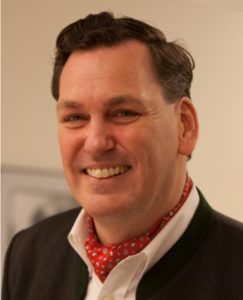 Biography: Peter J. Winzer received his Ph.D. in electrical engineering from the Technical University of Vienna, Austria, and from 2000 to 2019 worked at Bell Labs in NJ, where he contributed to many high-speed optical transmission records from 10 Gbit/s to 1 Tbit/s per carrier, including the first field trial of live 100G video traffic. Following his involvement in estimating the optical fiber Shannon capacity, he investigated space-division multiplexing to scale optical transport systems. In 2020 he founded the start-up company Nubis Communications. Dr, Winzer has widely published and patented and is actively involved with the IEEE Photonics Society and the OSA. He served as Editor-in-Chief of the IEEE/OSA Journal of Lightwave Technology from 2013 to 2018, was Program Chair of the ECOC 2009, and Program/General Chair of OFC 2015/2017. Dr. Winzer is a Highly Cited Researcher, a Bell Labs Fellow, a Fellow of the IEEE and the OSA, and an elected member of the US National Academy of Engineering. He received multiple awards for his work, including the John Tyndall Award, and holds an honorary doctorate from the Technical University of Eindhoven.
Biography: Peter J. Winzer received his Ph.D. in electrical engineering from the Technical University of Vienna, Austria, and from 2000 to 2019 worked at Bell Labs in NJ, where he contributed to many high-speed optical transmission records from 10 Gbit/s to 1 Tbit/s per carrier, including the first field trial of live 100G video traffic. Following his involvement in estimating the optical fiber Shannon capacity, he investigated space-division multiplexing to scale optical transport systems. In 2020 he founded the start-up company Nubis Communications. Dr, Winzer has widely published and patented and is actively involved with the IEEE Photonics Society and the OSA. He served as Editor-in-Chief of the IEEE/OSA Journal of Lightwave Technology from 2013 to 2018, was Program Chair of the ECOC 2009, and Program/General Chair of OFC 2015/2017. Dr. Winzer is a Highly Cited Researcher, a Bell Labs Fellow, a Fellow of the IEEE and the OSA, and an elected member of the US National Academy of Engineering. He received multiple awards for his work, including the John Tyndall Award, and holds an honorary doctorate from the Technical University of Eindhoven.
Loukas Paraschis, IEEE Communications Society
Biography: Loukas Paraschis has 25-year experience in R&D leadership, product management, and business development of the Internet and cloud transport network infrastructure. Until the summer 2021, Loukas was senior director and CTO of cloud transport system engineering for Internet and content providers at Infinera. From 2007-2015, he was cisco’s senior technology architect for wireline transport in global service provider, and from 2000-2006 technical leader in cisco optical networking and routing. He has (co)authored more than 100 peer‐reviewed publications, invited and tutorial presentations, book chapters, and patents, has served in many IEEE and OSA leadership positions, including the OFC and JOCN steering committees, the OFC and IEEE ComSoc long range planning committees, as JOCN associated editor, IEEE Photonics Society Distinguished Lecturer (2009), and is an OSA Fellow (2011). Loukas graduated from Stanford University (PhD 1999, MS 1998) where he worked at the Information Systems and Networking Research laboratories. He was born and raised in Athens, Greece, where he completed his undergraduate studies.
Muhammad Zeeshan Shakir, Reader (Associate Professor), Computer Networks, University of the West of Scotland, UK
Biography: Dr Muhammad Zeeshan Shakir, Reader (Associate Professor) in Computer Networks at the University of the West of Scotland (UWS), UK, leads UWS IoT Innovation Lab, and received over £3m research funding from Innovate UK, ERASMUS, QNRF and Scottish Govt. With over 15 years of research expertise in design and development wireless technologies, published over 150 research articles and edited or contributed to 10 books including a recent book: AI for Emerging Verticals: Human-Robot Computing, Networking and Sensing (2021) published by The IET. Recipient of 2021 IEEE Communications Society Fred W. Ellersick award and 2019 IEEE Communications Society & China Institute of Communications best journal article award for 5G/6G research. Recipient of STARS (Staff Appreciation and Recognition Scheme) Award 2020 & 2018 for outstanding research and enterprise performance at UWS. Serving as a chair and organising committee of several symposiums/workshops in IEEE flagship conferences, including Globecom, ICC and WCNC. An Editor of PHYCOM, IEEE Communications Letters and served as a guest editor to IEEE Wireless Communications, IEEE Communications, and IEEE Access. Founding chair of IEEE Communications Society emerging technologies committee on backhaul/fronthaul, Fellow of Higher Education Academy, UK, Senior Member of IEEE, and an active member of IEEE Communications Society. Member Scottish parliament Covid-19 framework to provide expert advice on the impact of Covid-19 on digital infrastructure, energy, education, and healthcare.
Georges Zissis, Professor, The University of Toulouse
Biography: Prof. Georges ZISSIS, PhD, SMIEE, immediate past-President IEEE Industrial Application Society and chair of IEEE Smart Cities Program, Vice-Rector Toulouse 3 University (2020-23). He has graduated in rom Physics department of University of Crete in general physics. He got his MSc and PhD in Plasma Science from Toulouse 3 University (France). He is today full Professor in Toulouse 3 University (France). His primary area of work is in the field of Light Sources Science and Technology. He won in December 2006 the 1st Award of the International Electrotechnical Committee (IEC) Centenary Challenge for his work on normalization for urban lighting systems (in conjunction with IEEE, IET and the Observer). He is Chairman of the 4E-Solid State Lighting Annex of the International Energy Agency (2020-24)
Junshan Zhang, Professor, Electrical and Computer Engineering Department, University of California Davis
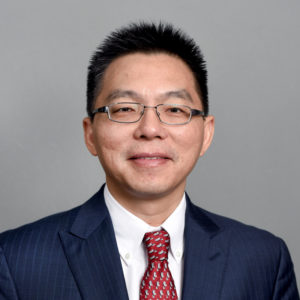 Biography: Junshan Zhang is a professor in the ECE Department at University of California Davis. He received his Ph.D. degree from the School of ECE at Purdue University in Aug. 2000, and was on the faculty of the School of ECEE at Arizona State University from 2000 to 2021. His research interests fall in the general field of information networks and data science, including edge intelligence, reinforcement learning, network optimization and control, game theory, with applications in connected and automated vehicles, 5G and beyond, wireless networks, IoT data privacy/security, and smart grid. Prof. Zhang is a Fellow of the IEEE, and a recipient of the ONR Young Investigator Award in 2005 and the NSF CAREER award in 2003. He received the IEEE Wireless Communication Technical Committee Recognition Award in 2016. His papers have won a few awards, including the Kenneth C. Sevcik Outstanding Student Paper Award of ACM SIGMETRICS/IFIP Performance 2016, the Best Paper Runner-up Award of IEEE INFOCOM 2009 and IEEE INFOCOM 2014, and the Best Paper Award at IEEE ICC 2008 and ICC 2017. Building on his research findings, he co-founded Smartiply Inc in 2015, a edge Computing startup company delivering boosted network connectivity and embedded artificial intelligence for IoT applications. Prof. Zhang is currently serving as Editor-in-Chief for IEEE Transactions on Wireless Communication and an editor-at-large for IEEE/ACM Transactions on Networking. He was TPC co-chair for a number of major conferences in communication networks, including IEEE INFOCOM 2012 and ACM MOBIHOC 2015. He was the general chair for ACM/IEEE SEC 2017, WiOPT 2016, and IEEE Communication Theory Workshop 2007. He was a Distinguished Lecturer of the IEEE Communications Society. He was an editor for the Computer Network journal, and an editor IEEE Wireless Communication Magazine.
Biography: Junshan Zhang is a professor in the ECE Department at University of California Davis. He received his Ph.D. degree from the School of ECE at Purdue University in Aug. 2000, and was on the faculty of the School of ECEE at Arizona State University from 2000 to 2021. His research interests fall in the general field of information networks and data science, including edge intelligence, reinforcement learning, network optimization and control, game theory, with applications in connected and automated vehicles, 5G and beyond, wireless networks, IoT data privacy/security, and smart grid. Prof. Zhang is a Fellow of the IEEE, and a recipient of the ONR Young Investigator Award in 2005 and the NSF CAREER award in 2003. He received the IEEE Wireless Communication Technical Committee Recognition Award in 2016. His papers have won a few awards, including the Kenneth C. Sevcik Outstanding Student Paper Award of ACM SIGMETRICS/IFIP Performance 2016, the Best Paper Runner-up Award of IEEE INFOCOM 2009 and IEEE INFOCOM 2014, and the Best Paper Award at IEEE ICC 2008 and ICC 2017. Building on his research findings, he co-founded Smartiply Inc in 2015, a edge Computing startup company delivering boosted network connectivity and embedded artificial intelligence for IoT applications. Prof. Zhang is currently serving as Editor-in-Chief for IEEE Transactions on Wireless Communication and an editor-at-large for IEEE/ACM Transactions on Networking. He was TPC co-chair for a number of major conferences in communication networks, including IEEE INFOCOM 2012 and ACM MOBIHOC 2015. He was the general chair for ACM/IEEE SEC 2017, WiOPT 2016, and IEEE Communication Theory Workshop 2007. He was a Distinguished Lecturer of the IEEE Communications Society. He was an editor for the Computer Network journal, and an editor IEEE Wireless Communication Magazine.
Tomaso De Cola, Team Leader, German Aerospace Center (DLR)
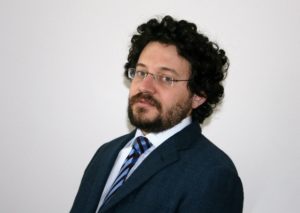 Biography: He received the master degree and PhD title from University of Genoa (Italy) in 2001 and 2010 respectively. He worked from 2002 to 2007 with the Italian Consortium of Telecommunications (CNIT), University of Genoa Research Unit, as scientist researcher. Since 2008, he has been with the German Aerospace Center (DLR), where he has been involved in several projects funded by EU and ESA programs, focusing on different aspects of DVB standards, CCSDS protocols, emergency communications, and testbed design. He is currently leading the integrated satellite systems group at the satellite networks departments, as part of the DLR institute of communications and navigation (DLR-KN).
Biography: He received the master degree and PhD title from University of Genoa (Italy) in 2001 and 2010 respectively. He worked from 2002 to 2007 with the Italian Consortium of Telecommunications (CNIT), University of Genoa Research Unit, as scientist researcher. Since 2008, he has been with the German Aerospace Center (DLR), where he has been involved in several projects funded by EU and ESA programs, focusing on different aspects of DVB standards, CCSDS protocols, emergency communications, and testbed design. He is currently leading the integrated satellite systems group at the satellite networks departments, as part of the DLR institute of communications and navigation (DLR-KN).
He has been taking part in different standardization activities within ETSI, IETF, DVB, and CCSDS, where he currently serves as deputy area director of the Space Internetworking Services (SIS) since 2015. He has been involved in many projects (co-)funded by European and Italian Space agencies and European Commission, where he served as project leader, project coordinator, or technical contributor. Finally, he is co-author of more than 100 papers, including international conferences and journals. His main research activity concerns: TCP/IP protocols, satellite networks, delay tolerant networks, and protocol architectures for space systems.
Dr. de Cola has served on the Technical Program Committee at many IEEE International Conferences and as TPC chair for the satellite track in many ICC and Globecom editions. He has also been guest editor for many IEEE journals and magazines. He is an IEEE ComSoc member, where he served as chair of the Satellite and Space Communications (SSC) technical Committee (TC) from 2017 to 2020. He is also recipient of the 2020 Satellite Communications Distinguished Service award from the aforementioned SSC technical committee.
George Schmelzer, IEEE Life Senior Member
Biography: George is an IEEE Life Senior Member and has a BSEE from Purdue University and MBA from the
University of Hawaii. He is retired after over 30 years in telecommunications and internet technology.
He began his career at GTE Hawaiian Tel working on conversion of local telephone switching from
electromechanical switches to digital technology. He later became manager of the international network
which involved working with the INTELSAT satellite network and undersea cables. He was involved in
the deployment of the first fiber optic undersea cables in the Pacific and the Atlantic regions. He was
promoted to senior manager of international networks for GTE and Genuity and was involved in
undersea fiber optic cables around the world. George then returned to Hawaii and worked on deploying
IP products: internet, voice and television and Fiber-To-The Home.
Francis Alueta, Director, Network Reliability, Hawaiian Telcom
Biography: Francis Alueta has responsibility for day-to-day operations of Hawaiian Telcom’s 24/7 state-of-the-art Network Operations Center, Hawaiian Telcom TV head end operations, 911 operations, Tier 2/3 Technical upport and the SEAUS cable system primary NOC. His team also includes Capacity Planning for Hawaiian Telcom’s CORE network A 30-year industry veteran, Mr. Alueta previously served as Director – Global Network Engineering and Operations for Verizon in New Jersey. He began his career in Outside Plant Engineering at GTE Hawaiian Tel in 1990. Born on Moloka‘i and raised on Maui, Mr. Alueta earned a Bachelor of Science degree in Electrical Engineering from the University of Hawaiʻi at Mānoa and a Masters in Telecommunication Management from the Stevens Institute of Technology.
Burt Lum, Broadband Strategy Officer, Hawai’i Broadband & Digital Equity Office
Biography: Burt Lum is the State of Hawaii’s Broadband Strategy Officer for the Hawaii Broadband & Digital Equity Office dedicated to ensuring that Hawaii establishes robust, resilient, ubiquitous connectivity to the global broadband network. He was previously the Executive Director of Hawaii Open Data, a non-profit dedicated to advancing the principles of open data/knowledge in Hawaii, including policy work and community collaborations. He has more than 30 years in Hawaii’s technology and communications sector and is a frequent speaker and panelist on the topic of Information and Communication Technology (ICT).
Jordan Silva, Senior Manager, Service Delivery | CBTS, Hawaiian Telcom
Biography: Jordan has spent over a decade helping organizations in Hawaii implement and utilize technology to solve business challenges. As Senior Manager of Service Delivery at CBTS | Hawaiian Telcom, Jordan is responsible for the delivery of Managed IT and Security Services to customers big and small all over the state (and some beyond). Jordan has a Master’s of Science in Leadership and Management, multiple industry certifications including the CISSP and PMP, and given the chance, he will happily talk your ear off regarding anything organizational culture related or the best ways to cook meat with fire.
Robert S. Fish is Chair of the IEEE Industry Engagement Committee, Past-President of the IEEE Standards Association, and Faculty Member, Department of Computer Science, at Princeton University
Biography: Dr. Robert S. Fish is a faculty member in the Department of Computer Science at Princeton University. He is also President of the IEEE Standards Association, a member of the Board of Governors of the IEEE Communications Society (ComSoc), and President of NETovations, LLC, a consulting company focused on the creation of communications and networking technology innovation. From 2007 to 2010, he was Chief Product Officer and Senior VP at Mformation, Inc. a company specializing in carrier software for mobile device management. From 1997 to 2007, Rob was Vice President and Managing Director of Panasonic US R&D laboratories. Prior to this, he was Executive Director, Multimedia Communications Research at Bellcore/Telcordia after starting his career at Bell Laboratories. Besides his many publications, Dr. Fish has been awarded 17 patents. He received his Ph.D. from Stanford University. Dr. Fish is Steering Committee chair and Co-founder of ComSoc’s Consumer Communications and Networking Conference. He is the former chair of ComSoc’s GLOBECOM and ICC Management and Strategy Committee. Dr. Fish was the recipient of ComSoc’s MMTC Distinguished Service Award. Rob has also been Chair of IEEE SA’s Global Committee, and was a founding member of the IEEE SA Corporate Advisory Group. He co-edited a series in IEEE Communications Magazine on IEEE standards in communications and networking. Dr. Fish and his organizations have initiated and managed standards development activities in IEEE, ISO/IEC JTC1, 3GPP, OMA, IETF, ATSC, CableLabs, OSGi, etc. In 2016, Dr. Fish was awarded the Standards Medallion of the IEEE Standards Association.
Dr. Song Choi, Assistant Dean, College of Engineering, University of Hawai’i at Manoa
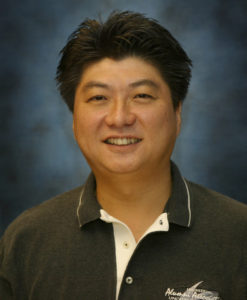 Biography: Dr. Song K. Choi received his BS, MEng, & PhD in Mechanical Engineering from Worcester Polytechnic Institute, Carnegie Mellon University, and University of Hawai’i at Mānoa, respectively. His specializations are in dynamics, controls, unmanned systems, and robotics with emphasis on automatic control systems, non-linear control systems, autonomous vehicle design, novel sensor systems, alternative/renewable power sources, process automation, and graphic monitoring systems for autonomous unmanned vehicles in the hazardous, aerial, and underwater environments.
Biography: Dr. Song K. Choi received his BS, MEng, & PhD in Mechanical Engineering from Worcester Polytechnic Institute, Carnegie Mellon University, and University of Hawai’i at Mānoa, respectively. His specializations are in dynamics, controls, unmanned systems, and robotics with emphasis on automatic control systems, non-linear control systems, autonomous vehicle design, novel sensor systems, alternative/renewable power sources, process automation, and graphic monitoring systems for autonomous unmanned vehicles in the hazardous, aerial, and underwater environments.
He returned to Hawaii in 1991 and has been a professor and researcher in the Autonomous Systems Engineering, Department of Mechanical Engineering, and has published numerous, refereed papers in his areas of expertise. He has received numerous grants and awards from federal, state, and county agencies, non-profit groups, universities, societies, and industry for his research, education, and community service.
He has been the assistant dean in the College of Engineering since 2004 and has been working with various primary, middle, and high schools in the State in promoting STEM education through robotics. He is also credited as one of the forefathers of scholastic robotics (K-12 grades) in Hawaii. His other interests lie in the areas of innovation & entrepreneurship and international business; and he is a co-founder of the Marine Autonomous Systems Engineering, Inc., a Hawaii-based spin-off company specializing in autonomous marine and robotic technologies and unique academic solutions. He is an active member of engineering and academic societies, and serves as an officer and board member on multiple academic, engineering, technology, business, education, and philanthropic organizations.
Ranga Rao Venkatesha Prasad, Associate Professor, Internet of Things, Cyber Physical Systems, Delft University of Technology
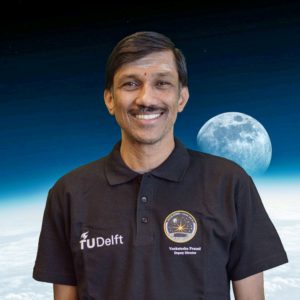 Biography: Dr. R Venkatesha Prasad is an associate professor at the Embedded Networked Systems group of Delft University of Technology (TU Delft). Between 2005 and 2012, he was a senior researcher and adjunct faculty at TU Delft. At TU Delft, he has supervised 20 PhD students and 60 MSc students. He has (co-)authored more than 250 publications in the peer-reviewed international transactions/journals and conferences in the areas of Tactile Internet, Internet of Things (IoT), Cyber Physical Systems (CPS), Energy-harvesting, 60 GHz mmWave networks, Smart-energy systems, Personal networks, Cognitive Radios and Voice over Internet Protocol (VoIP). He has been successful in acquiring and executing several European and Dutch national projects in the above areas. Venkatesha Prasad received his 4TU University Teaching Qualification diploma with excellence in 2015. Recognizing his research contributions to IoT, he has been selected as an IEEE Communication Society (ComSoc) Distinguished Lecturer on Internet of Things for the period 2016-2020. He has been contributing significantly to valorise research to practice by contributing to standards on Cognitive radios and Tactile Internet. He is currently the mentor for IEEE Tactile Internet standardization group. He is also leading many IEEE activities through positions in standards boards (secretary in the ComSoc standards board) and technical committees (vice-chair of cognitive networking committee in 2013-16). He is on the editorial board of many international transactions and magazines and is a regular TPC member for many prestigious journals and conferences. He was responsible for the signing of MoU between IISc – TU Delft and he is anchoring Indian Space Research Organization (ISRO) and TU Delft cooperation. He is the Deputy Project Director for Lunar Zebro – a moon rover project. He is a senior member of IEEE and ACM and a Fellow of IETE. He completed his PhD from IISc, Bangalore, India in 2003. During his PhD research, a scalable VoIP conferencing platform was designed. His thesis work led to a start-up venture, Esqube Communication Solutions. While at Esqube, eight patent applications and three PCT applications were filed along with his colleagues. He was instrumental in Esqube’s selection as top 100 IT innovators in India in 2006 by NASSCOM and top 100 promising companies in Asia by RedHerring in 2008. Recently, he led a student team to win the worldwide Airbus challenge — Fly Your Ideas (2019).
Biography: Dr. R Venkatesha Prasad is an associate professor at the Embedded Networked Systems group of Delft University of Technology (TU Delft). Between 2005 and 2012, he was a senior researcher and adjunct faculty at TU Delft. At TU Delft, he has supervised 20 PhD students and 60 MSc students. He has (co-)authored more than 250 publications in the peer-reviewed international transactions/journals and conferences in the areas of Tactile Internet, Internet of Things (IoT), Cyber Physical Systems (CPS), Energy-harvesting, 60 GHz mmWave networks, Smart-energy systems, Personal networks, Cognitive Radios and Voice over Internet Protocol (VoIP). He has been successful in acquiring and executing several European and Dutch national projects in the above areas. Venkatesha Prasad received his 4TU University Teaching Qualification diploma with excellence in 2015. Recognizing his research contributions to IoT, he has been selected as an IEEE Communication Society (ComSoc) Distinguished Lecturer on Internet of Things for the period 2016-2020. He has been contributing significantly to valorise research to practice by contributing to standards on Cognitive radios and Tactile Internet. He is currently the mentor for IEEE Tactile Internet standardization group. He is also leading many IEEE activities through positions in standards boards (secretary in the ComSoc standards board) and technical committees (vice-chair of cognitive networking committee in 2013-16). He is on the editorial board of many international transactions and magazines and is a regular TPC member for many prestigious journals and conferences. He was responsible for the signing of MoU between IISc – TU Delft and he is anchoring Indian Space Research Organization (ISRO) and TU Delft cooperation. He is the Deputy Project Director for Lunar Zebro – a moon rover project. He is a senior member of IEEE and ACM and a Fellow of IETE. He completed his PhD from IISc, Bangalore, India in 2003. During his PhD research, a scalable VoIP conferencing platform was designed. His thesis work led to a start-up venture, Esqube Communication Solutions. While at Esqube, eight patent applications and three PCT applications were filed along with his colleagues. He was instrumental in Esqube’s selection as top 100 IT innovators in India in 2006 by NASSCOM and top 100 promising companies in Asia by RedHerring in 2008. Recently, he led a student team to win the worldwide Airbus challenge — Fly Your Ideas (2019).
Halim Yanikomeroglu, Professor, Department of Systems and Computer Engineering, Carleton University, Canada
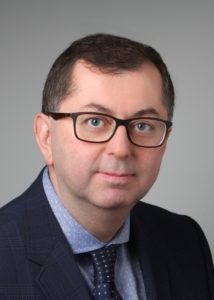 Biography: Dr. Halim Yanikomeroglu is a Professor at Carleton University, Canada. He received his Ph.D. from the University of Toronto in 1998. He contributed to 4G/5G technologies and standards; his research focus in recent years include 6G/B6G, non-terrestrial networks (NTN), and future wireless infrastructure. His extensive collaboration with industry resulted in about 40 granted patents. He supervised or hosted in his lab around 140 postgraduate researchers. He co-authored IEEE papers with faculty members in 80+ universities in 25 countries. He is a Fellow of IEEE, Engineering Institute of Canada (EIC), and Canadian Academy of Engineering (CAE), and an IEEE Distinguished Speaker for ComSoc and VTS.
Biography: Dr. Halim Yanikomeroglu is a Professor at Carleton University, Canada. He received his Ph.D. from the University of Toronto in 1998. He contributed to 4G/5G technologies and standards; his research focus in recent years include 6G/B6G, non-terrestrial networks (NTN), and future wireless infrastructure. His extensive collaboration with industry resulted in about 40 granted patents. He supervised or hosted in his lab around 140 postgraduate researchers. He co-authored IEEE papers with faculty members in 80+ universities in 25 countries. He is a Fellow of IEEE, Engineering Institute of Canada (EIC), and Canadian Academy of Engineering (CAE), and an IEEE Distinguished Speaker for ComSoc and VTS.
Dr. Yanikomeroglu is currently serving as the Director of IEEE ComSoc Technical Committees Board, Member of ComSoc Conference Council, Chair of IEEE WCNC Steering Committee, Member of IEEE PIMRC Steering Committee, and Member of ComSoc Emerging Technologies Committee. He served as the General Chair of two VTCs and Technical Program Chair/Co-Chair of three WCNCs. He chaired ComSoc Technical Committee on Personal Communications. He received several awards for his research, teaching, and service, including IEEE ComSoc Fred W. Ellersick Prize (2021), IEEE VTS Stuart Meyer Memorial Award (2020), IEEE ComSoc Wireless Communications Technical Committee Recognition Award (2018), and a number of best paper awards.




